Professional Courses
Industry-relevant training in Business, Technology, and Design
Categories
Interactive Games
Fun games to boost memory, math, typing, and English skills
Typing
Memory
Math
English Adventures
Knowledge
A Guide to ICSE Subjects: Understanding the Group I, II, and III Choices

Council for the Indian School Certificate Examinations (CISCE) Board organises the Indian Certificate of Secondary Education (ICSE) Examination every year. Unlike several other boards which have a fixed pattern of subjects, ICSE offers students a choice to select from three groups, Group I, II and III, thus helping them to find a balance between the core knowledge, their interests and the chosen career.
For both students and parents struggling to understand which are the best subjects to choose for the ICSE Class 9 and 10, we’ve created a thorough understanding of each group for you. We’ll explain the subjects with their academic weight, what they build in terms of skills and how to plan your combination strategically.
ICSE Subject Structure at a Glance
At the ICSE level, the subjects are divided into three core groups:
- Group I – Compulsory Core Subjects
- Group II – Optional Academic Subjects
- Group III – Skill-Based or Application Subjects
Students typically take seven subjects:
- Three from Group I
- Two from Group II
- One from Group III
- One additional subject (optional in some schools)
Overall grades are compiled by averaging the best five subjects, with English being compulsory.
It's flexible, but not so much as to sacrifice academic breadth. Every subject has two components: internal and external assessments.
Group I: The Compulsory Core
Subjects in Group I:
- English (Paper 1: Language, Paper 2: Literature)
- Second Language (Hindi / regional / foreign language)
- History, Civics & Geography (combined into one paper)
1. English
English is mandatory and comprises two papers:
- Paper 1: Grammar, composition, letter-writing, and comprehension
- Paper 2: Literature — prose, poetry and drama (typically taken from prescribed texts)
A good understanding of English is mandatory as it is part of the best-of-five score for board assessment.
2. Second Language
Students must choose a second language from one of the following:
- Hindi
- Sanskrit
- French
- German
- Bengali
- Punjabi
- Tamil
- Other known regional or foreign languages
This paper develops grammar, comprehension and writing skills. It is great for achieving bilingual fluency and cultural sensitivity.
3. History, Civics, and Geography
This paper is divided into:
- History & Civics: Indian history, the freedom movement, Indian Constitution
- Geography: Map reading, landforms, climates, industries and resources of the world
This combined paper encourages awareness of political structures and spatial understanding.
Why Group I Matters: Group I subjects are mandatory and form the base of the ICSE assessment. In English and History-Civics-Geography, this language fluency and civic understanding is further encouraged.
Group II: Academic Electives
Students must choose any two subjects from the following list:
- Mathematics
- Science (Physics, Chemistry, Biology — combined)
- Economics
- Commercial Studies
- Environmental Science
- Computer Science
- Modern Foreign Languages (e.g., Spanish, Mandarin)
- Classical Languages (e.g., Sanskrit, Pali)
1. Mathematics
Great for students looking to pursue commerce, science, or engineering later. The exam paper includes:
- Algebra
- Geometry
- Statistics
- Trigonometry
2. Science (PCB Combined)
While the topic is assessed as one paper, students study:
- Physics: Laws of motion, electricity, heat
- Chemistry: The Periodic Table of Elements, chemical reactions, acids and bases
- Biology: Human physiology, plants, ecosystems
Great for aspiring doctors, engineers, or science professionals.
3. Economics
Teaches concepts such as:
- Demand and supply
- Cost and inflation
- Types of economies
Suitable for students aspiring for commerce or humanities in Class 11–12.
4. Commercial Studies
Covers fundamentals of:
- Business and commerce
- Banking and finance
- E-commerce and trade
Useful for budding entrepreneurs and students of commerce.
5. Environmental Science
Includes chapters on:
- Ecosystems
- Pollution and sustainability
- Natural resources
Good for students interested in environment or geography.
6. Computer Science
Theory paper covering:
- Programming foundations in Java or Python
- Programming logic
- Computer applications
Perfect for tech-savvy students.
Why Group II Matters: These subjects are academic in orientation and often lead into higher educational specialisation. Choosing wisely here sets the tone for Class 11–12 streams and entrance exam preparation.
Group III: Skills and Interests
Students choose one of the following application- or skill-based courses:
- Home Science
- Fashion Designing
- Computer Applications
- Economic Applications
- Commercial Applications
- Art
- Performing Arts (Music, Dance, Drama)
- Physical Education
- Yoga
- Cookery
- Technical Drawing
- Mass Media and Communication
Each subject typically has:
- Internal Assessment – 50%
- Theory Paper – 50%
Highlights of Group III Subjects:
- Computer Applications: Hands-on programming, files, logic
- Art/Music/Dance/Drama: Creativity, aesthetics and performance
- Commercial Applications: Business-based case studies
- Yoga/Physical Education: Health, discipline, stress release
- Home Science / Cookery: Life skills, nutrition, household management
Why Group III Matters: These subjects allow students to develop practical skills and explore interests beyond theory. They promote creativity and real-world applications, helping build confidence and uncover hidden talents.
How ICSE Evaluates Subject Combinations
Students are scored out of 700 marks (7 subjects). But only the best 5 scores count, and one of those must be English.
Example:
If a student scores highest in:
- English
- Math
- Science
- History & Civics
- Computer Applications
Then their aggregate is calculated using these five subjects.
Subject-Wise Weightage:
- 80% External (Board Exams)
- 20% Internal (Projects, Tests, Practicals)
Note: Internal assessment in some Group III subjects is up to 50%.
What to Choose for Subjects: Strategy and Tips
1. Understand Your Strengths
- Good in logic and numbers? → Opt for Math and Science
- Into reading, culture, or social issues? → Try History, Literature, Economics
- Love computers or gadgets? → Opt for Computer Science or Applications
2. Think About Future Plans
- Planning for NEET/Engineering? → Choose Science (PCB) and Math
- Interested in CA/Commerce? → Choose Mathematics, Economics, or Business Studies
- Creative stream in mind? → Consider Art, Performing Arts, or Mass Media
3. Balance Heavy and Light Subjects
- Don’t choose only theory-heavy or calculation-heavy subjects
- Group III can help “offset” the load
4. Explore with Teachers
- Talk to school teachers and academic advisors
- Reflect on your performance and feedback from earlier grades
5. Look Ahead
- Subject choices in Class 9–10 can affect Class 11–12 streams.
- Choose foundation subjects aligned to your long-term goals. For expert guidance and tuition, check out these ICSE courses designed to help you excel.
FAQs: ICSE Subject Selection
Q. Can I choose more than 7 subjects in ICSE? Yes, some schools allow additional subjects, but board results are based on 7 subjects only.
Q. Is English compulsory in best-of-five calculation? Yes, English is always counted in the final score aggregation.
Q. What if I score low in Group III? It will affect your best-of-five only if it's among your top scores. Otherwise, it won’t be counted.
Q. Can I change subjects in Class 10? Usually no. Subjects are chosen in Class 9 and continue into Class 10.
Why the Choices Matter
The ICSE subject selection process is flexible yet structured. It gives a chance for pupils to bring to the fore their academic interests, practical abilities, and plans for the near future. With a selection from Group I, II and III, you can customise your academic path for success in board exams, higher education, and life.
The ICSE curriculum gives students the space and freedom to shape their education—whether targeting science, commerce, arts, or creative fields. It empowers exploration and helps every learner perform at their best. To discover more resources for your academic journey, visit the AllRounder homepage.
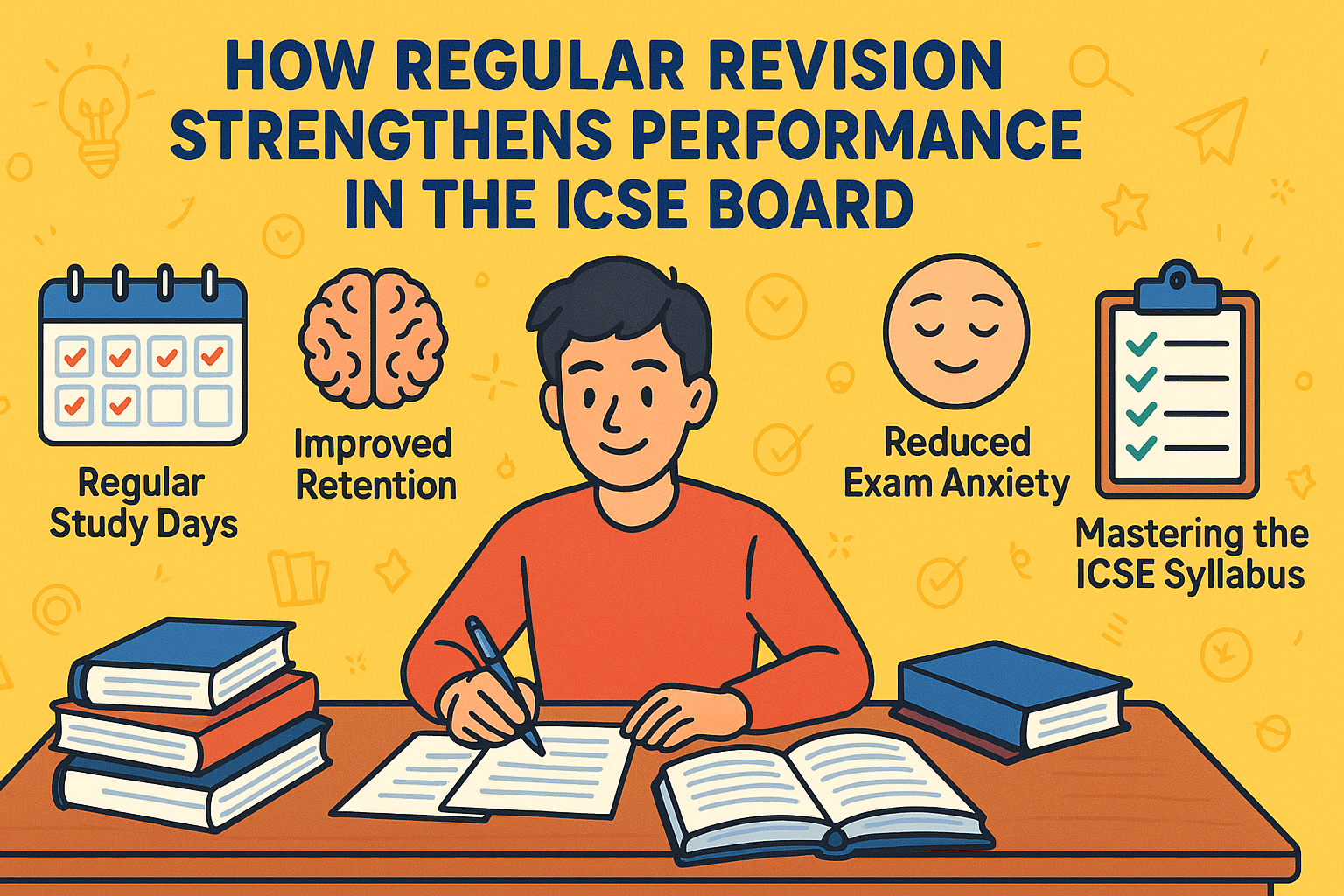
Learn how regular revision strengthens performance in the ICSE board, improves retention, reduces exam anxiety, and...

Learn how to create a reading-friendly home environment for ICSE students to improve comprehension, confidence, and...

Learn how to encourage curiosity and inquiry in ICSE learners by supporting concept clarity, safe questioning, and...

Explore the role of parents in supporting ICSE academic growth, from understanding the ICSE curriculum to building...

Learn how parents can monitor ICSE study progress without pressure, support concept clarity, reduce stress, and help...

Learn the essential time management skills every ICSE student should build early to handle the syllabus, reduce...
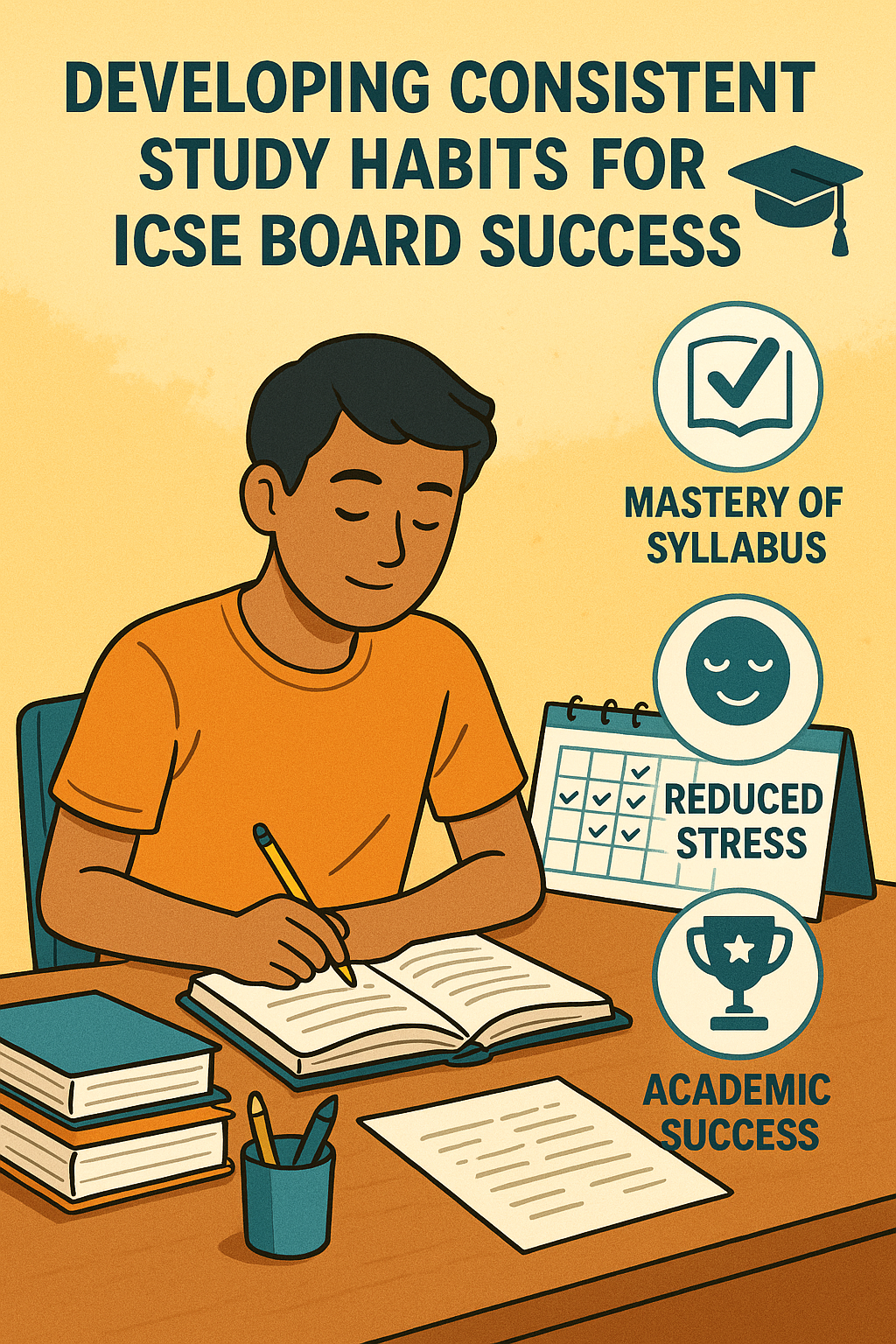
Learn how consistent study habits help ICSE students master the syllabus, reduce stress, and achieve long-term...
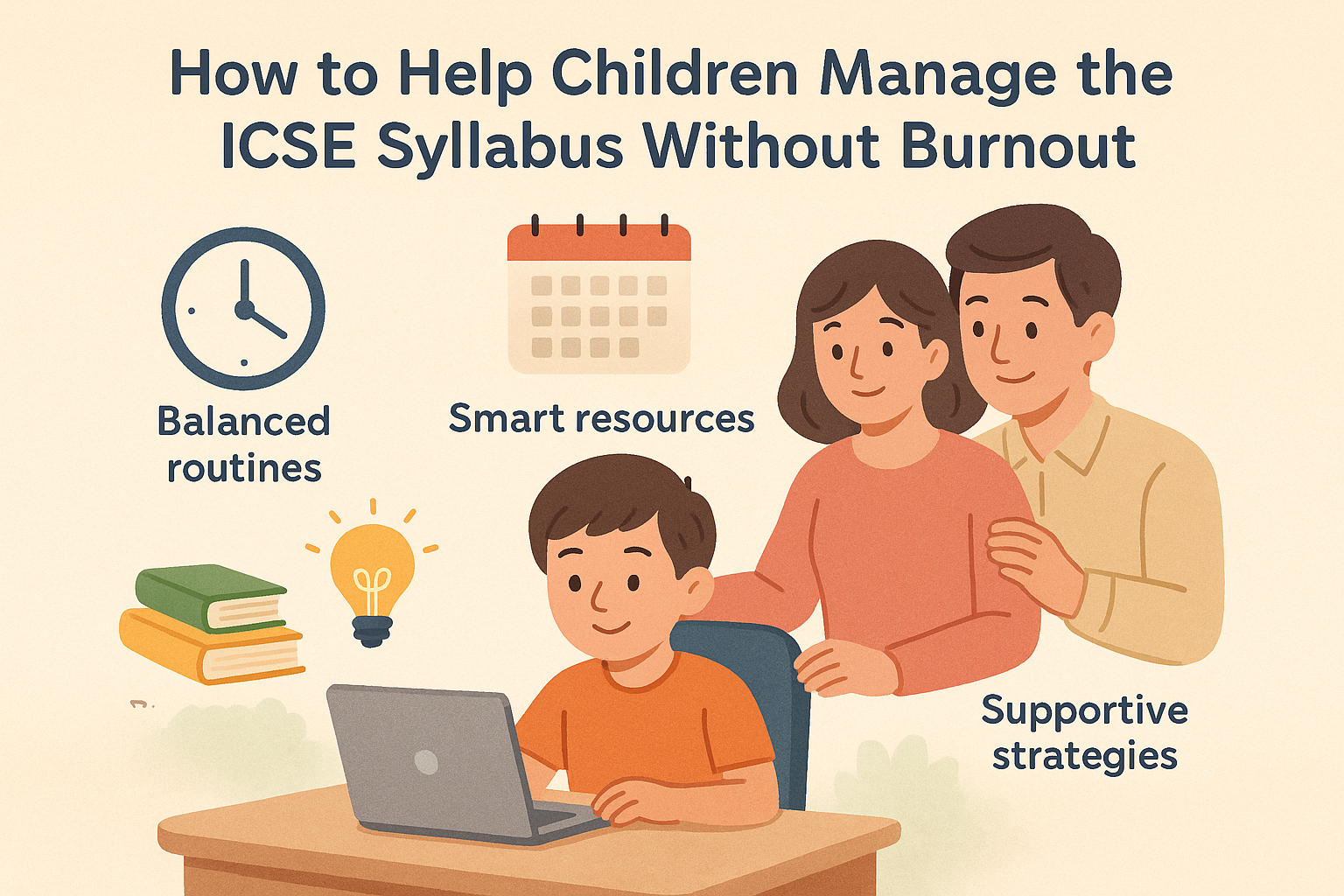
Learn how parents can help children manage the ICSE syllabus without burnout using balanced routines, smart...
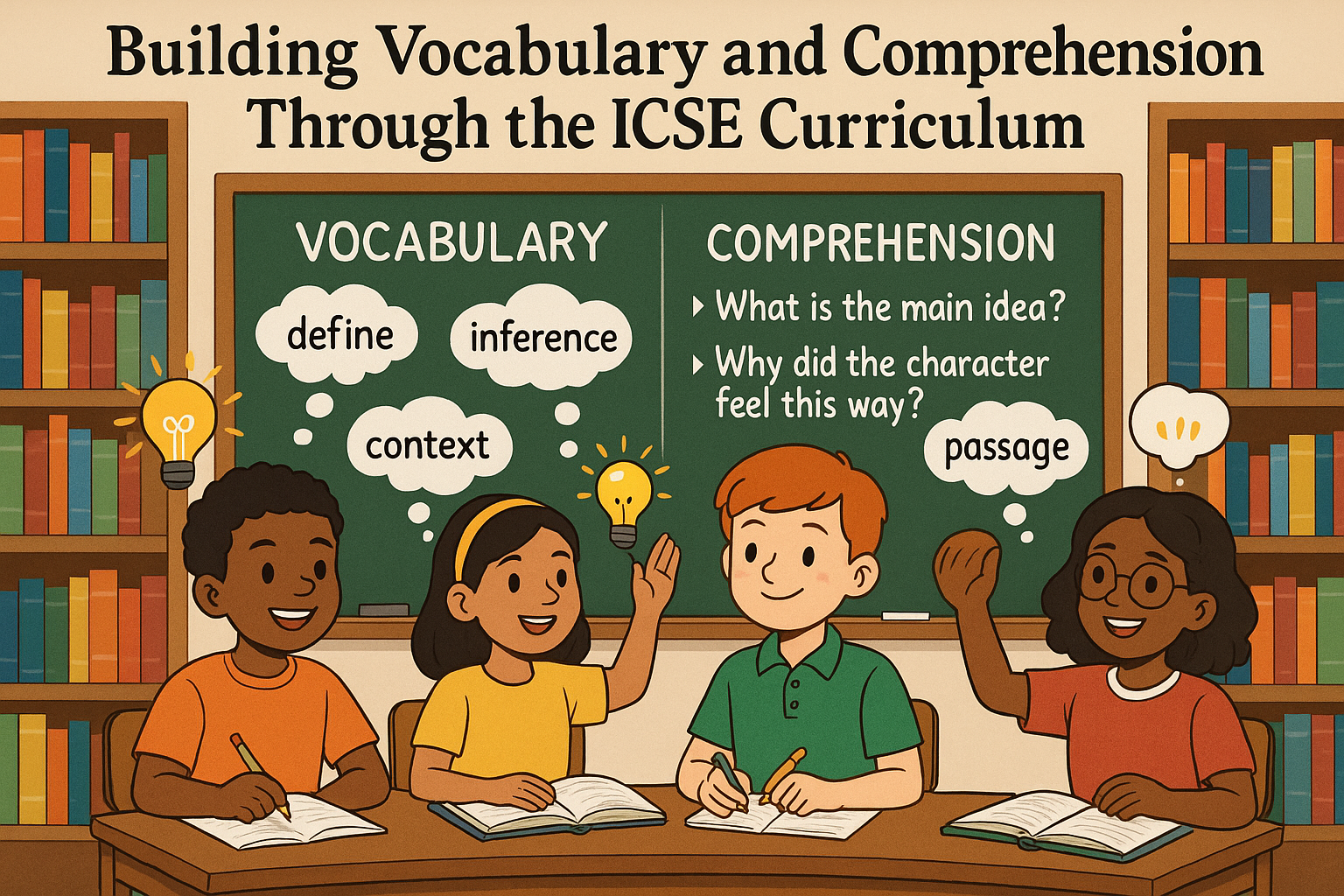
Learn how the ICSE curriculum strengthens vocabulary and comprehension skills while helping students think deeply...
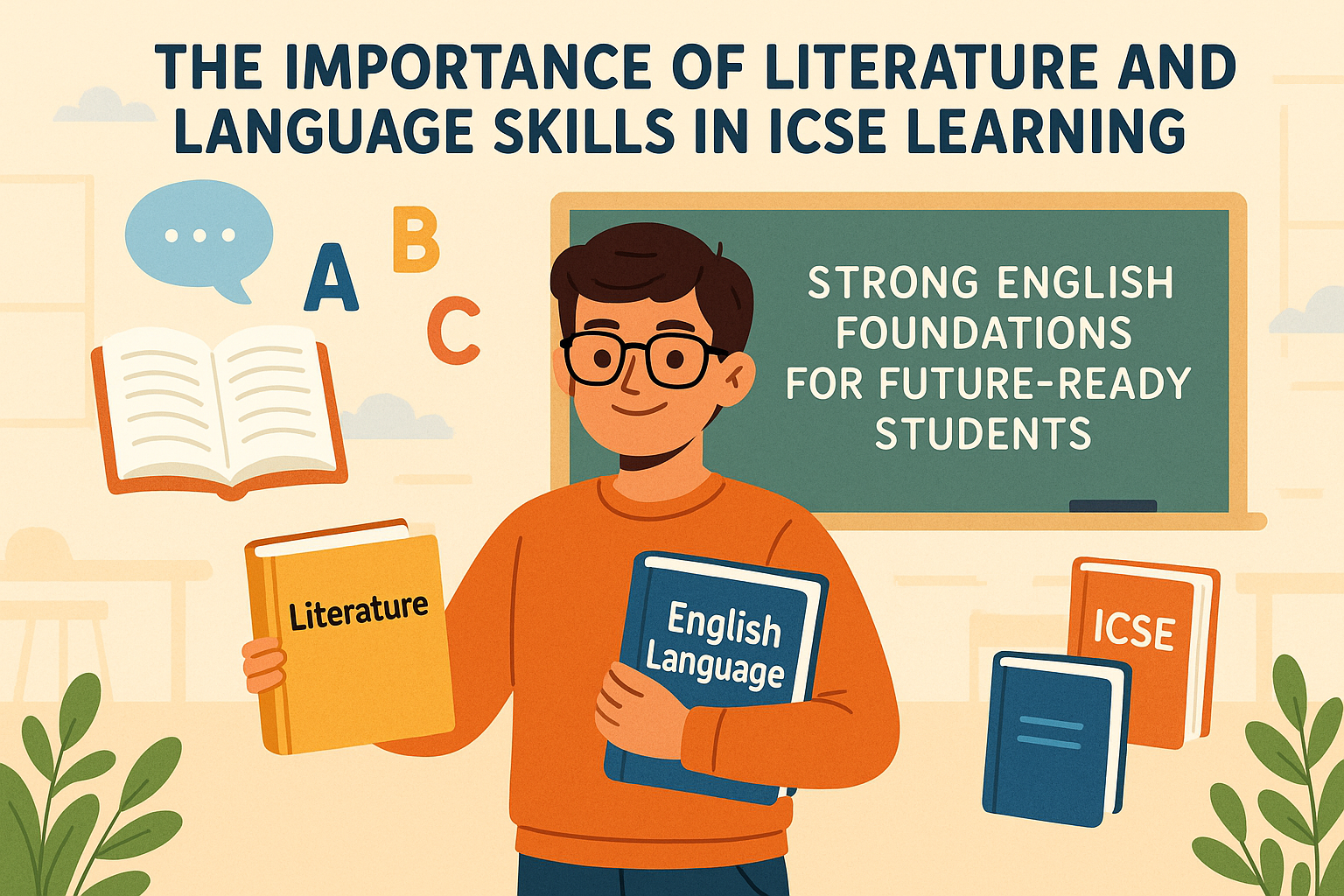
Explore why literature and language skills are central to ICSE learning and how strong English foundations shape...
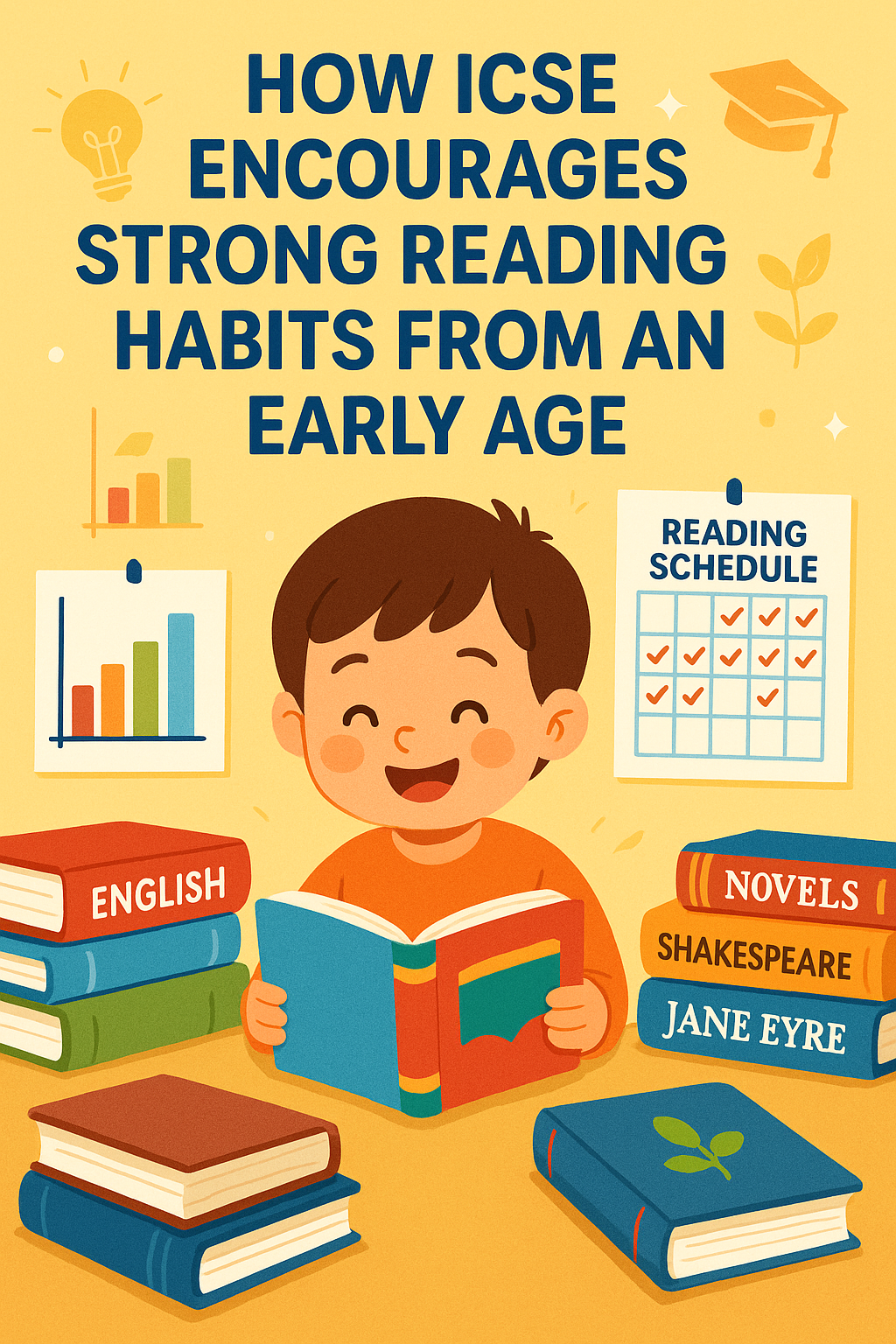
Discover how the ICSE curriculum builds strong reading habits early through textbooks, literature, and structured...
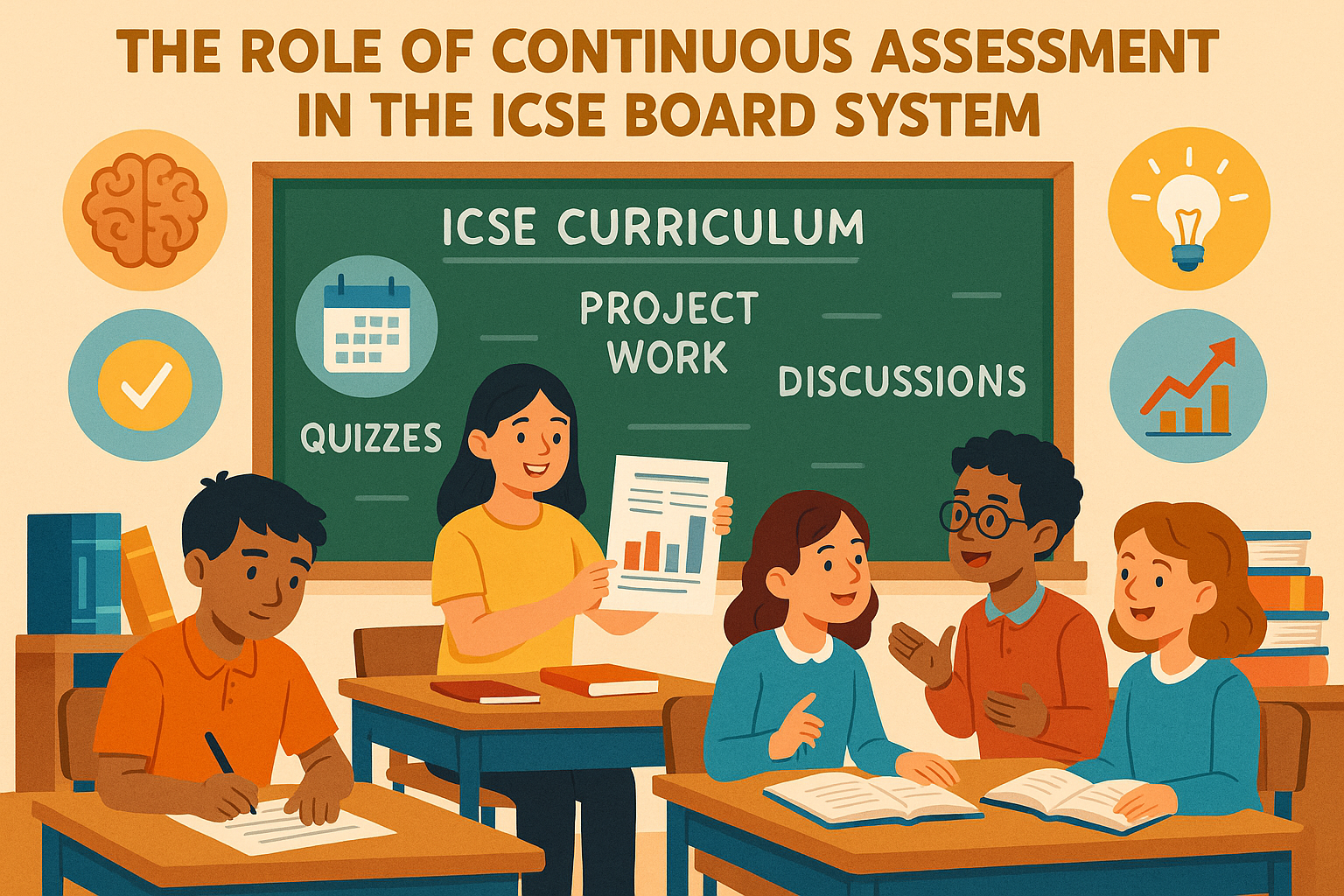
Understand how continuous assessment strengthens the ICSE curriculum by supporting deep learning, consistency, and...
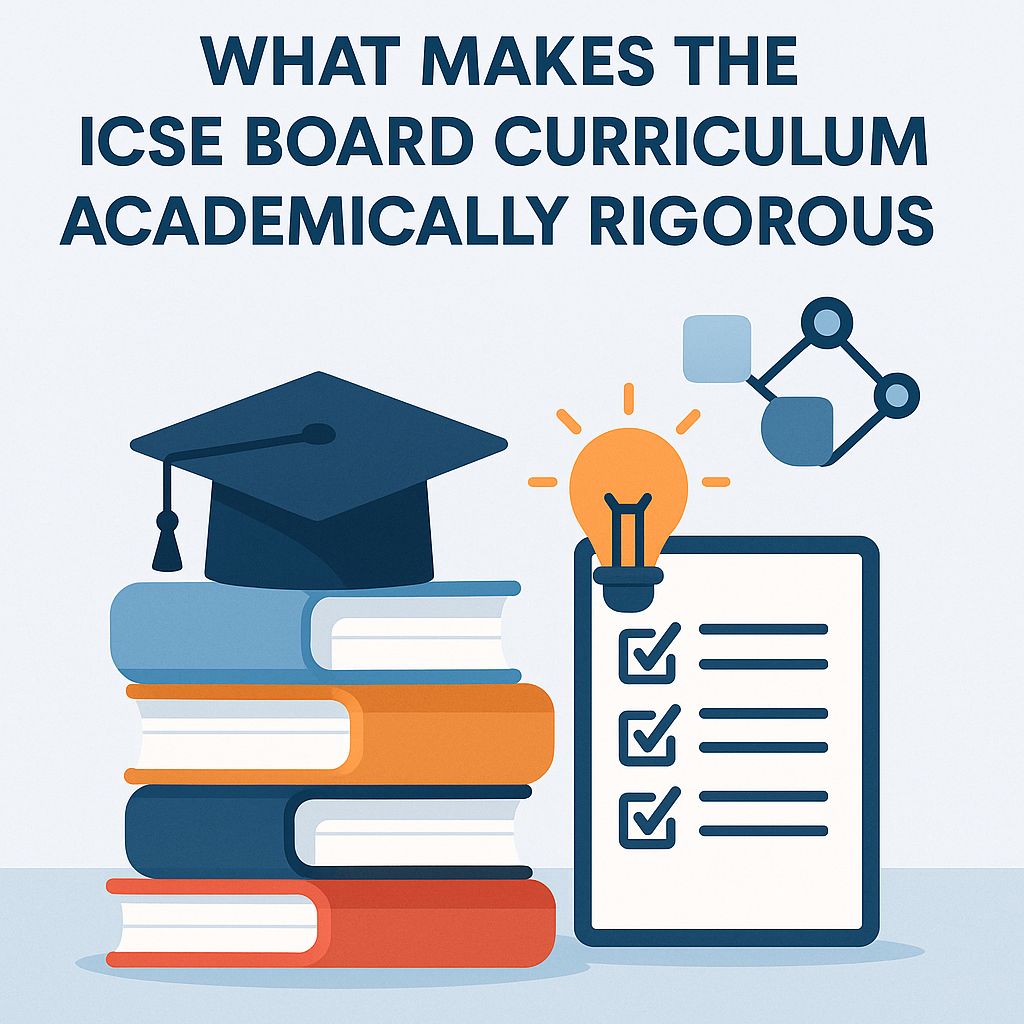
Explore what makes the ICSE curriculum academically rigorous and why its depth, structure, and assessment style...
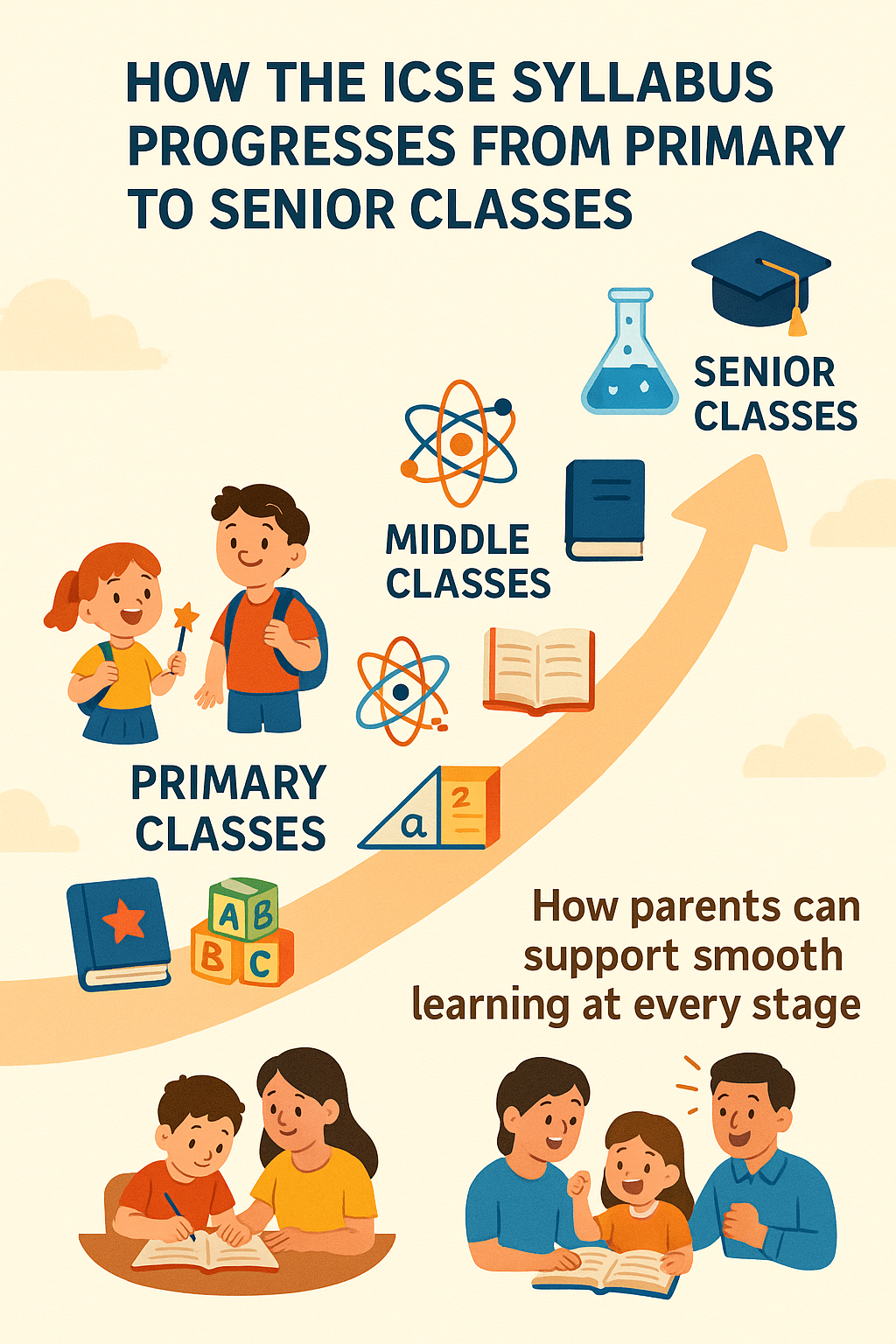
Understand how the ICSE syllabus progresses from primary to senior classes and how parents can support smooth...

Learn ICSE-specific methods parents can use to help children overcome exam anxiety, build confidence, and approach...
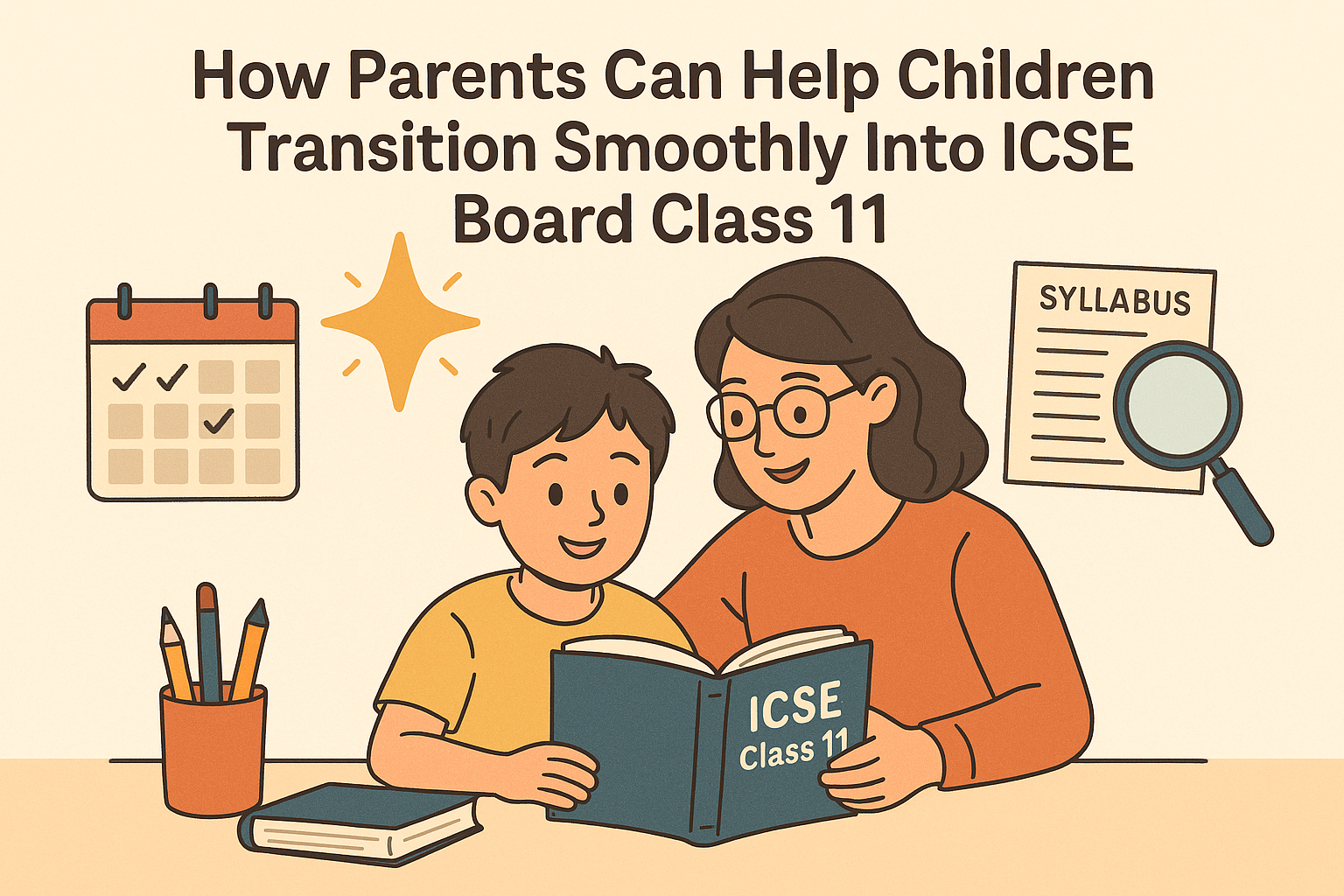
Learn how parents can support a smooth transition into ICSE Class 11 by building habits, confidence, and clarity...
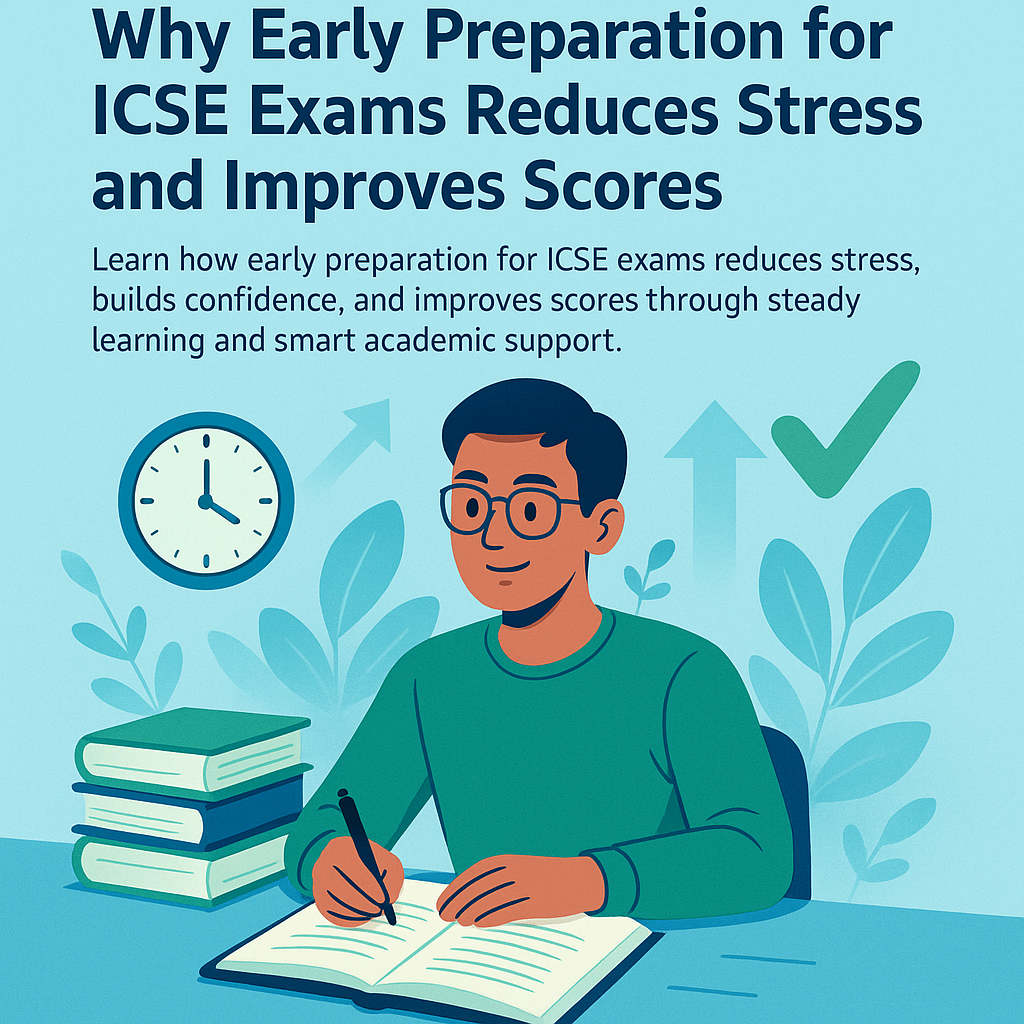
Learn how early preparation for ICSE exams reduces stress, builds confidence, and improves scores through steady...
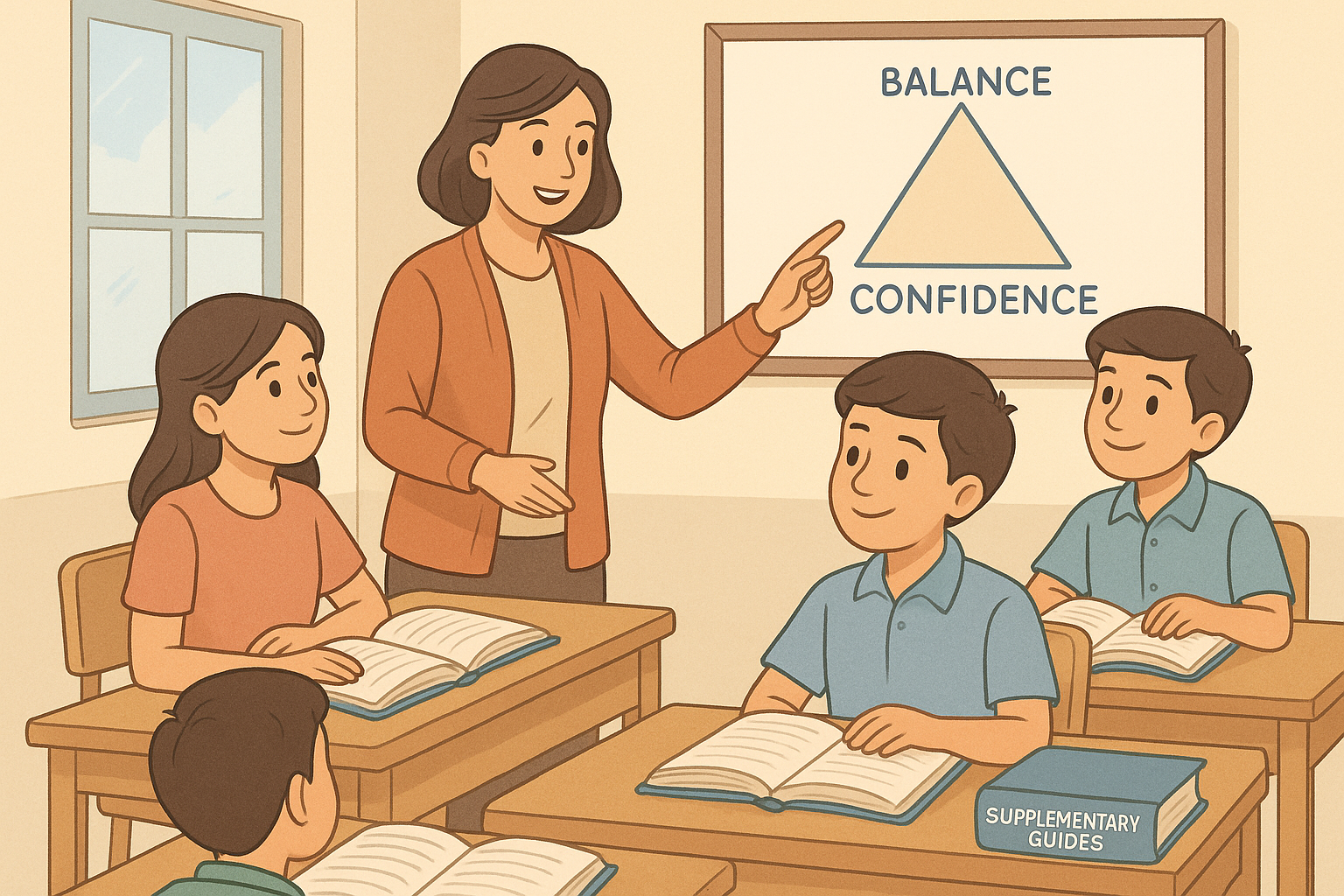
Learn how to use ICSE textbooks and supplementary guides effectively without overwhelming students, while building...

Discover what ICSE topper strategies reveal about effective parental support and how parents can guide learning...

Understand why ICSE students are excelling in competitive exams and how the ICSE curriculum builds strong concepts,...

Discover how ICSE help platforms support students struggling with multiple subjects through structured learning,...
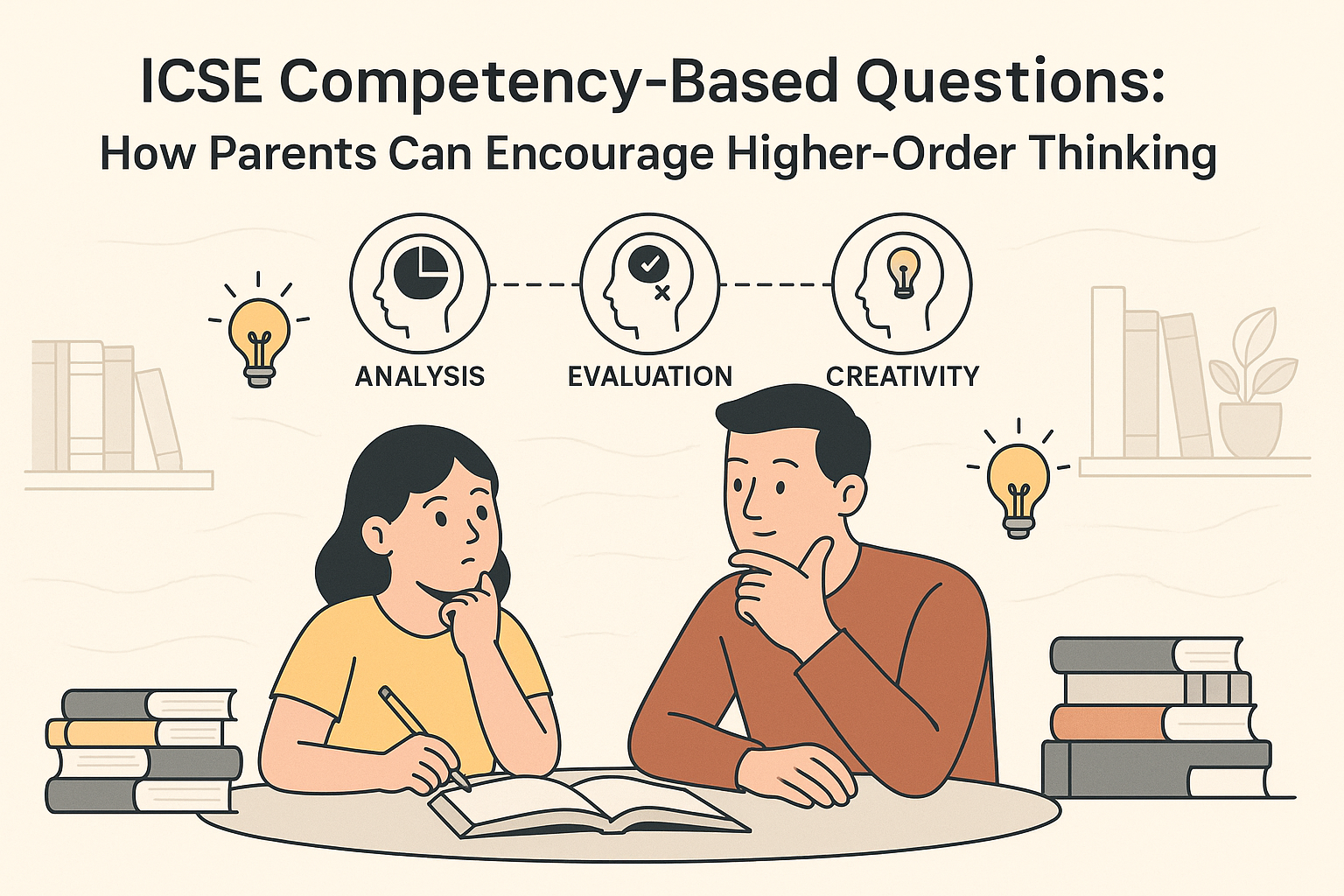
Learn how ICSE competency-based questions build higher-order thinking and how parents can support children through...

Explore how digital learning is reshaping ICSE schools by improving concept clarity, engagement, and academic...

Learn how to build strong self-study habits at home using ICSE help resources that improve understanding, confidence...

Understand how practical learning in ICSE schools builds clarity, confidence and real world skills that prepare...

Learn how project-based learning is transforming ICSE classrooms and helping students build real-world skills...

Explore why ICSE schools are gaining popularity in tier-2 cities and how curriculum depth, career readiness and...

Explore how recent ICSE syllabus realignments are equipping students with future-ready skills, career adaptability...

Understand how competency-based ICSE exams build strong foundations that prepare students for NEET, JEE and CUET...
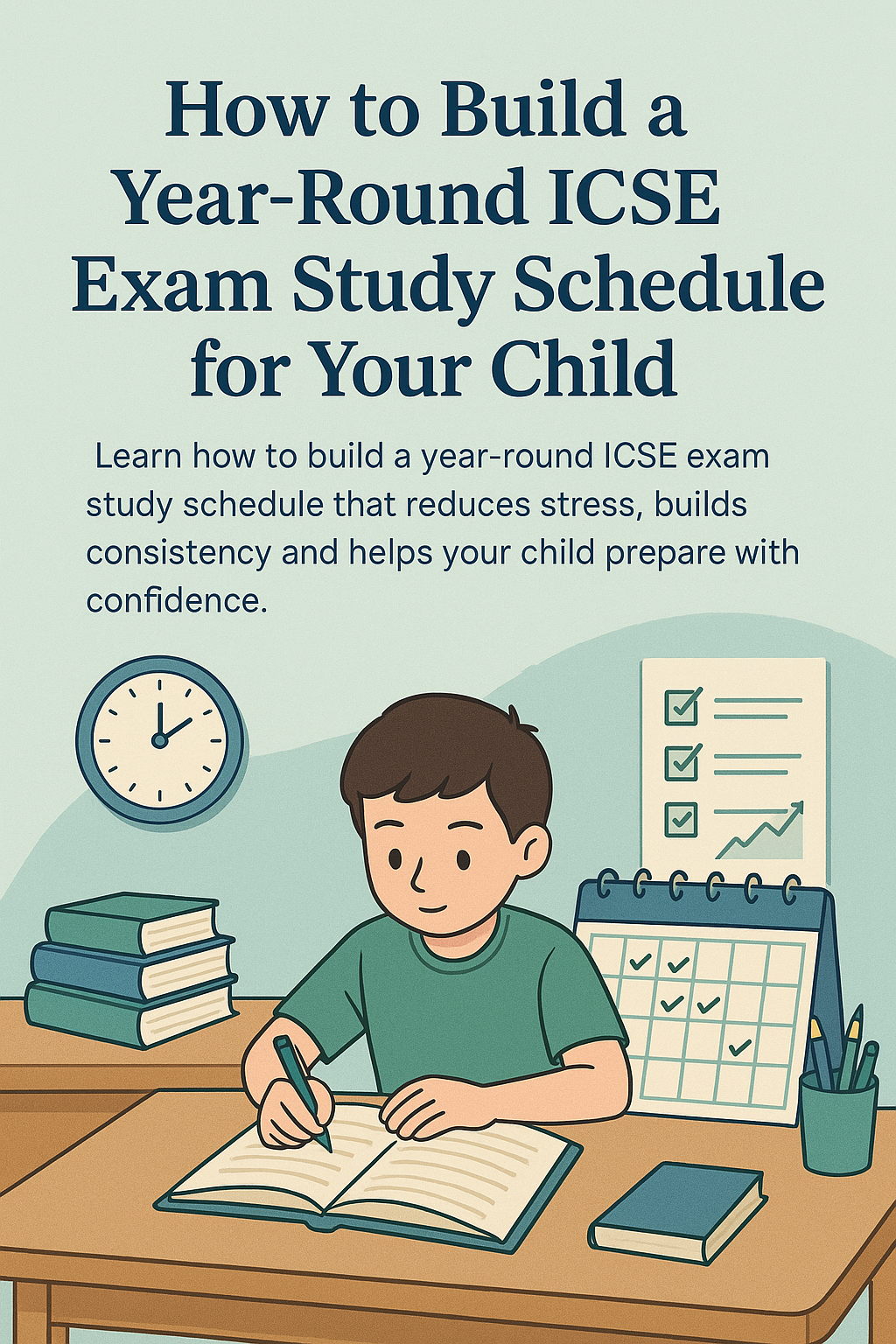
Learn how to build a year-round ICSE exam study schedule that reduces stress, builds consistency and helps your...

Understand how ICSE textbooks support application-based learning and help students build strong concepts, analytical...

Explore why parents of high-performing students and toppers choose the ICSE board for senior classes and how its...
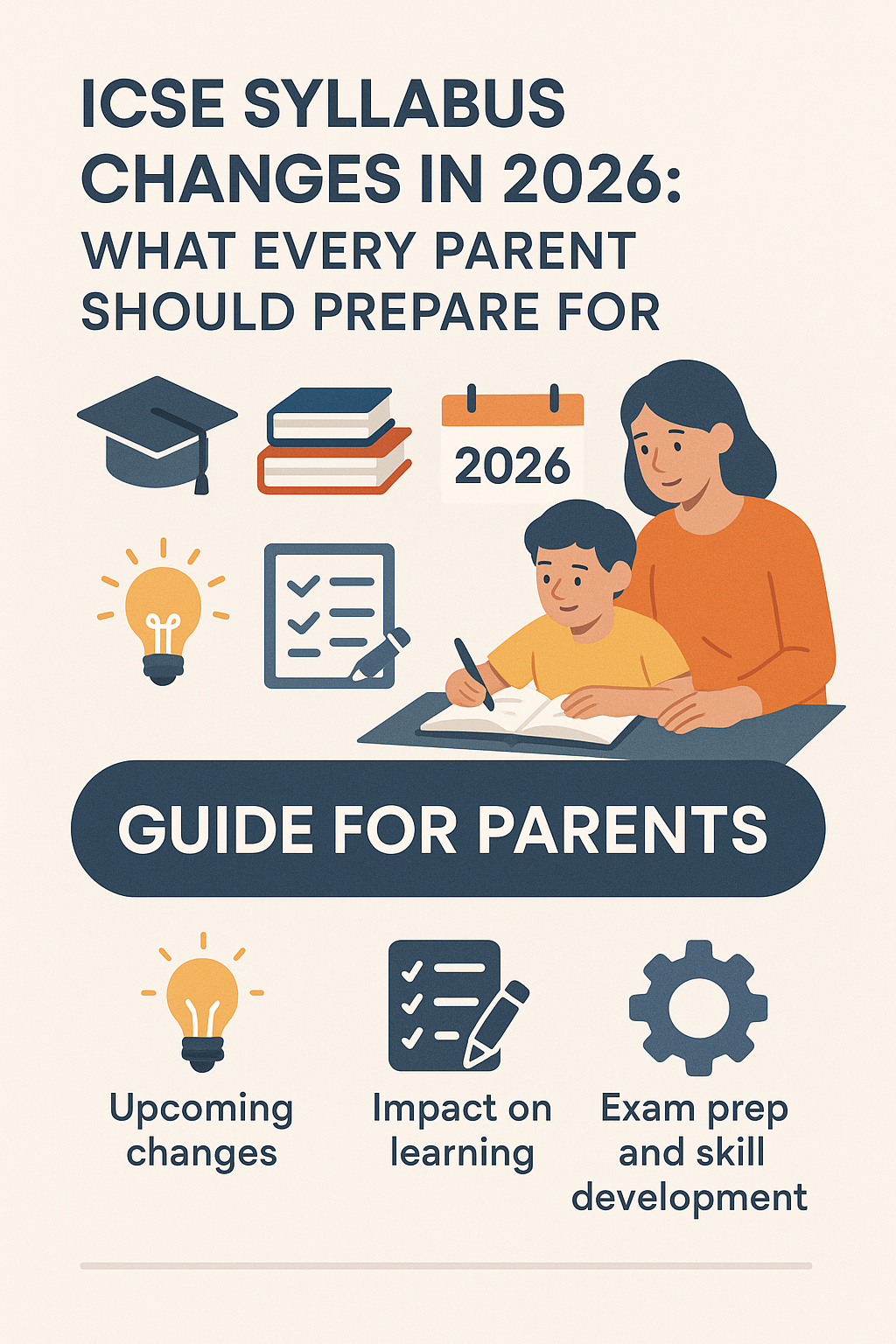
A clear guide for parents on the upcoming ICSE syllabus changes in 2026 and how these updates impact learning, exam...

Explore the best ICSE schools in Mumbai that balance academics and co-curricular growth while supporting holistic...
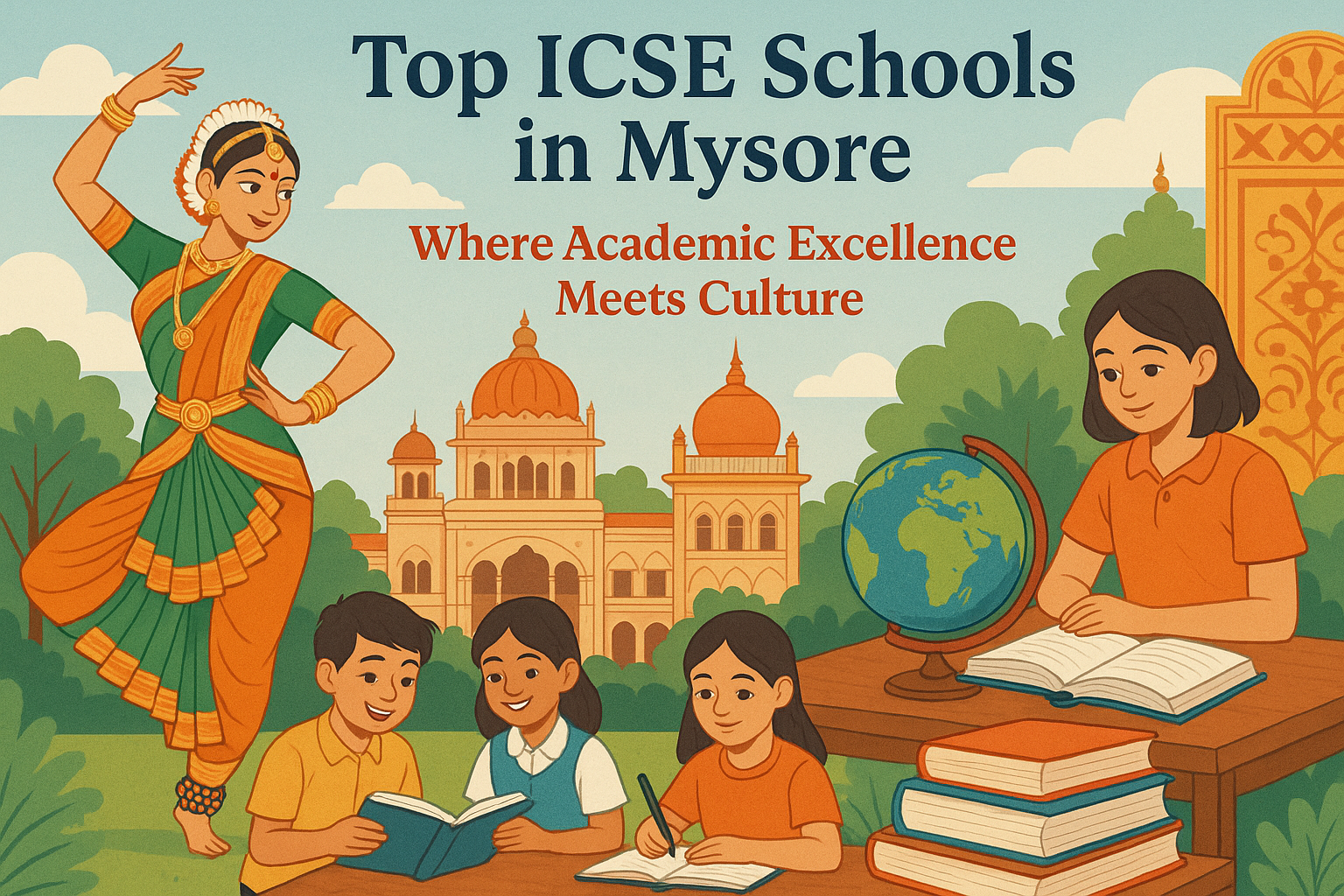
Discover the best ICSE schools in Mysore that blend strong academics with the city’s cultural traditions, while...

Discover the best ICSE schools in Lucknow that follow child-centric learning, strong academics and holistic...

Parents prefer ICSE schools in Ahmedabad for concept-based learning, strong academics and holistic development....

Explore the best ICSE schools in Madurai that offer balanced education, strong academics, and holistic development...
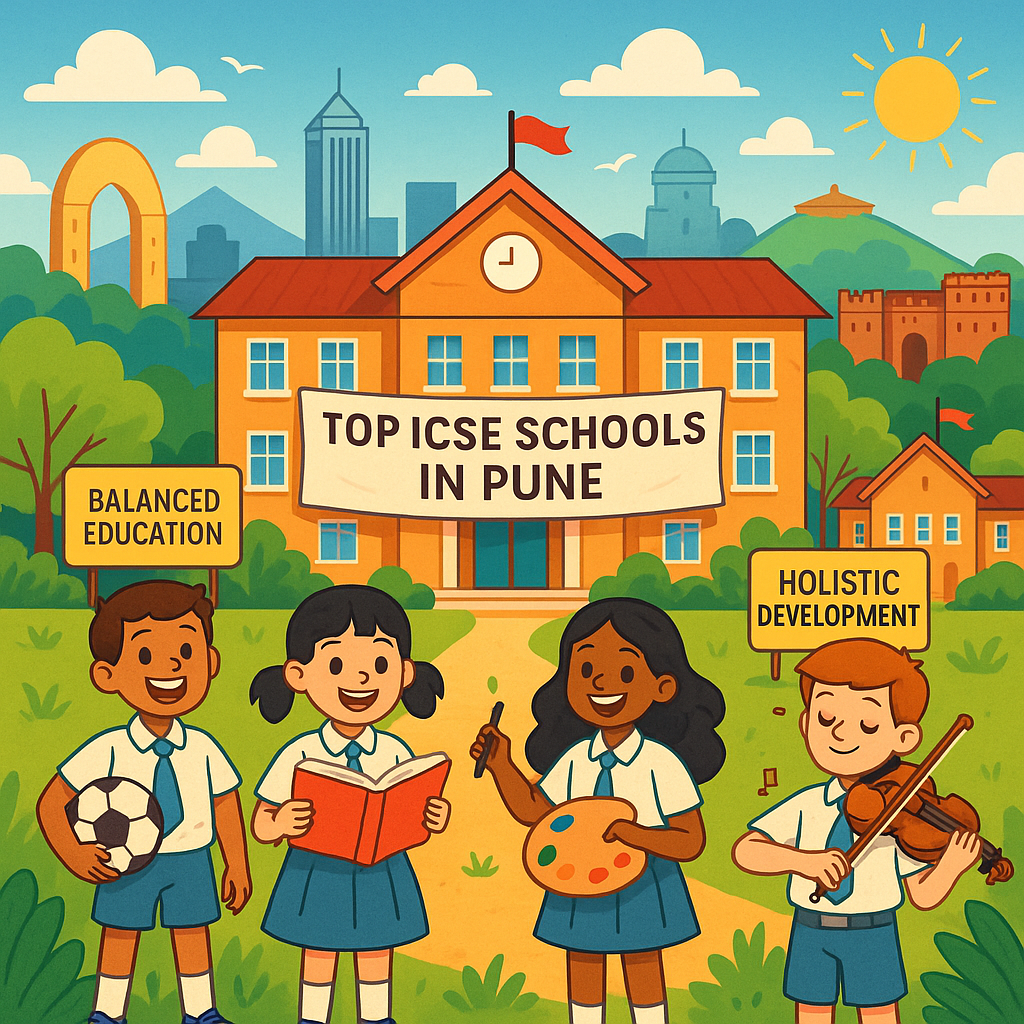
Explore the best ICSE schools in Pune that offer balanced education, strong academics and holistic development for...

Explore the top ICSE schools in Dehradun known for academic rigor, balanced learning and strong foundations that...

Explore the best ICSE schools in Chennai that offer strong academic foundations, holistic growth and a syllabus that...

Explore the top-rated ICSE schools in Hyderabad known for strong academics, balanced learning and a modern approach...

Explore the best ICSE schools in Coimbatore that blend tradition with innovation through strong academics, modern...

Discover the top ICSE schools in Bangalore that focus on academics, skills, creativity and holistic growth to help...
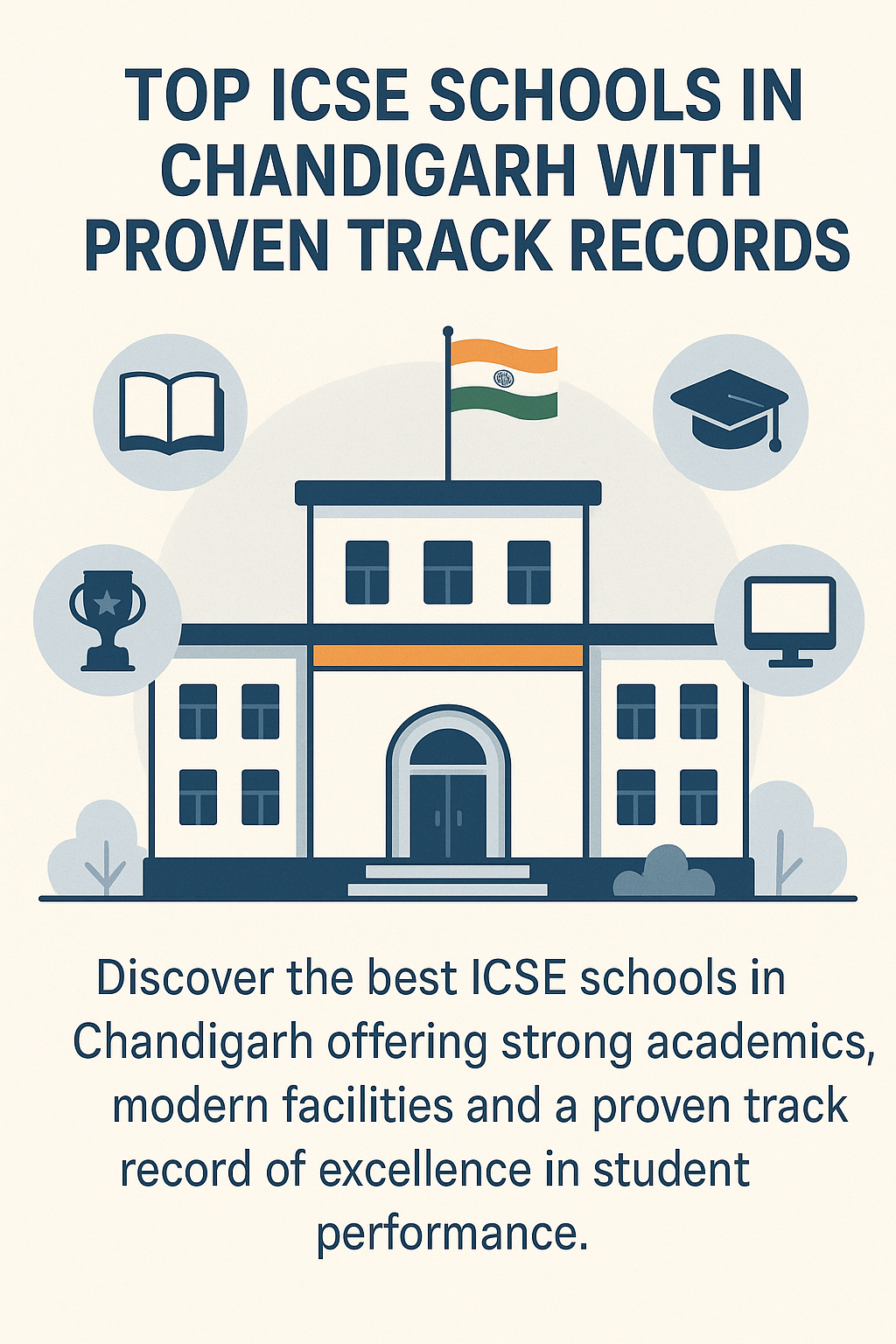
Discover the best ICSE schools in Chandigarh offering strong academics, modern facilities and a proven track record...

Explore the best ICSE schools in Kolkata known for academic strength, modern facilities and a strong focus on...
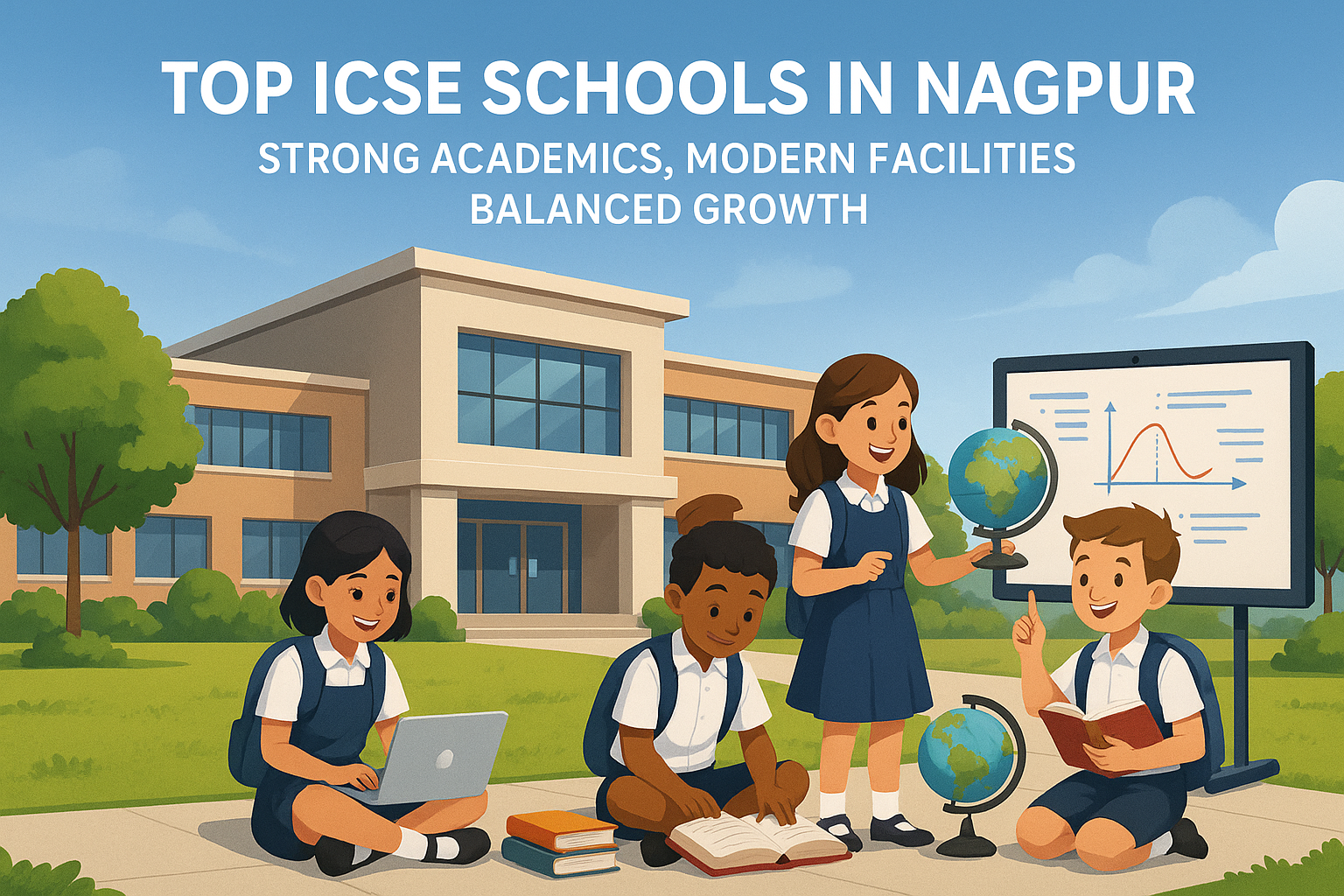
Explore the best ICSE schools in Nagpur offering strong academics, modern facilities and a balanced approach...
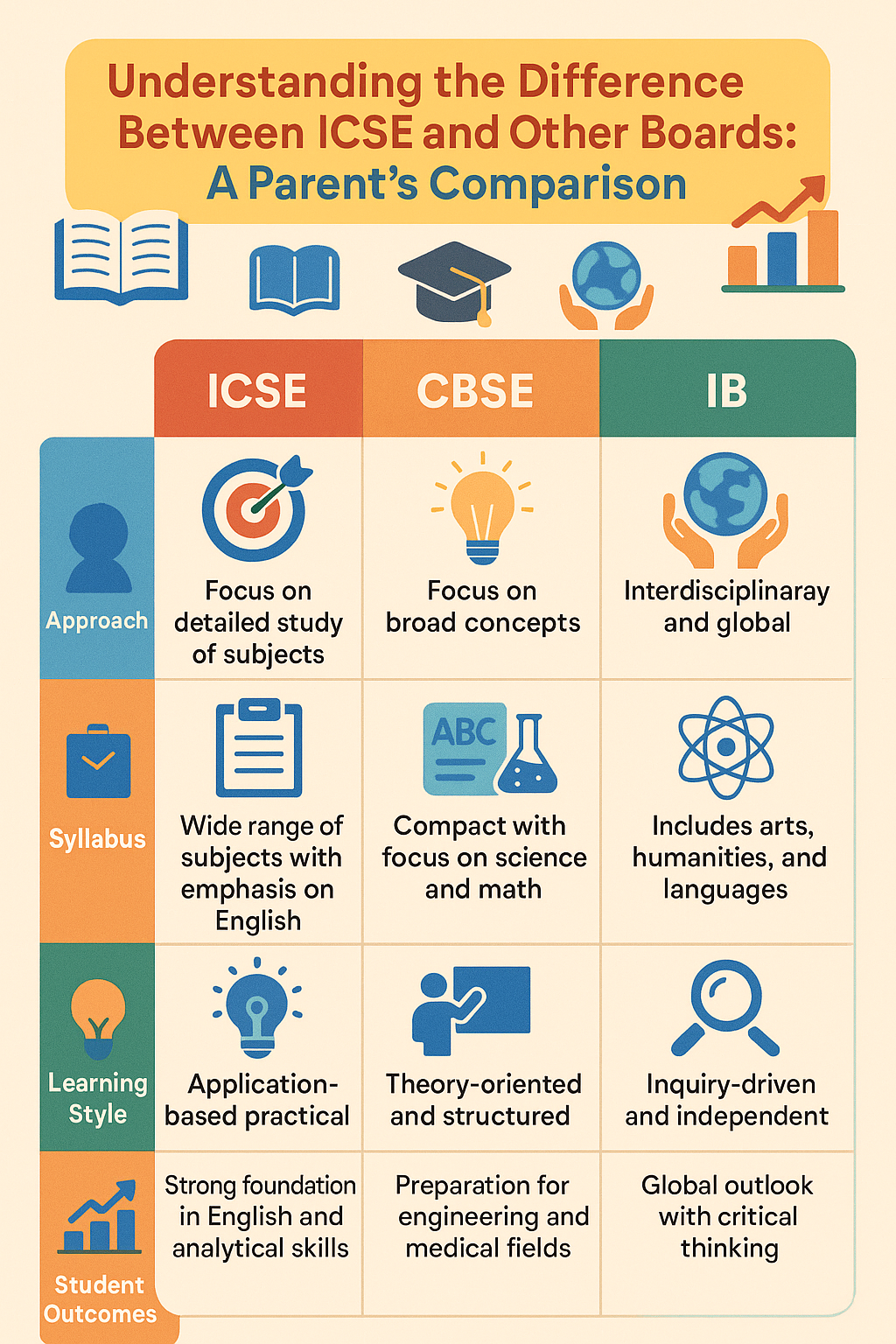
A clear comparison of ICSE, CBSE and IB boards to help parents understand differences in approach, syllabus,...
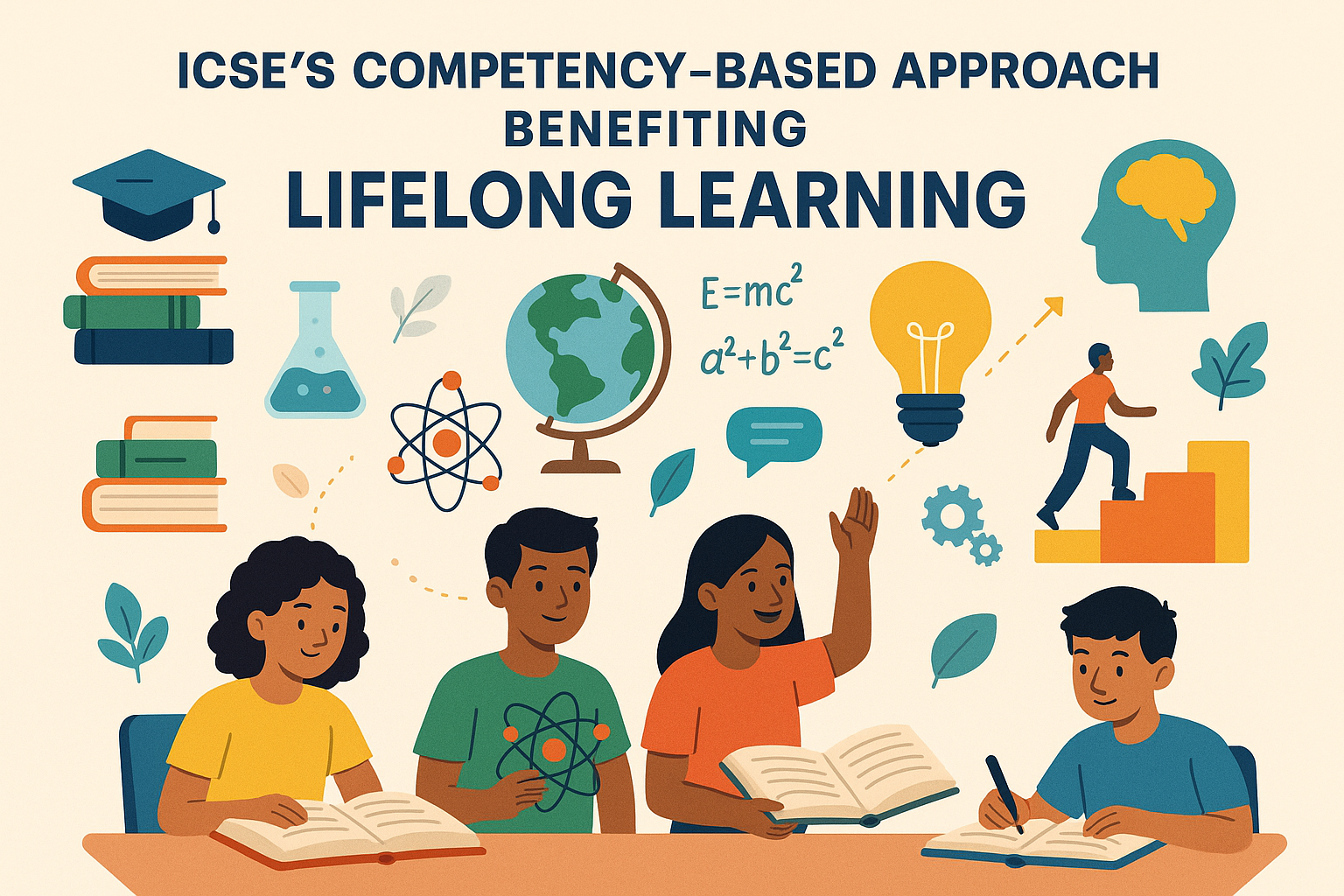
Explore how ICSE’s competency-based approach strengthens understanding, real-world thinking and lifelong learning...
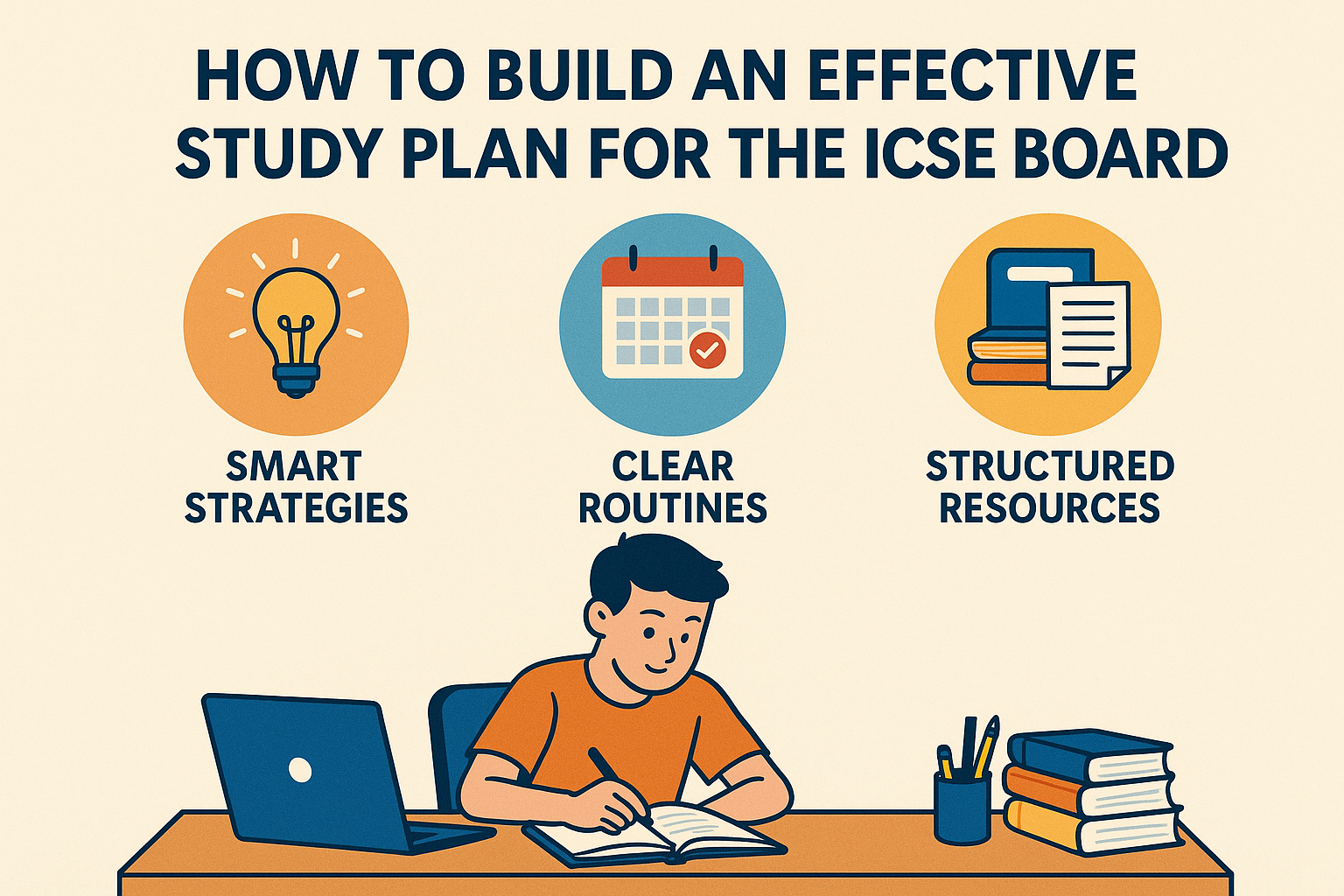
Learn how to build an effective ICSE study plan with smart strategies, clear routines and structured resources for...
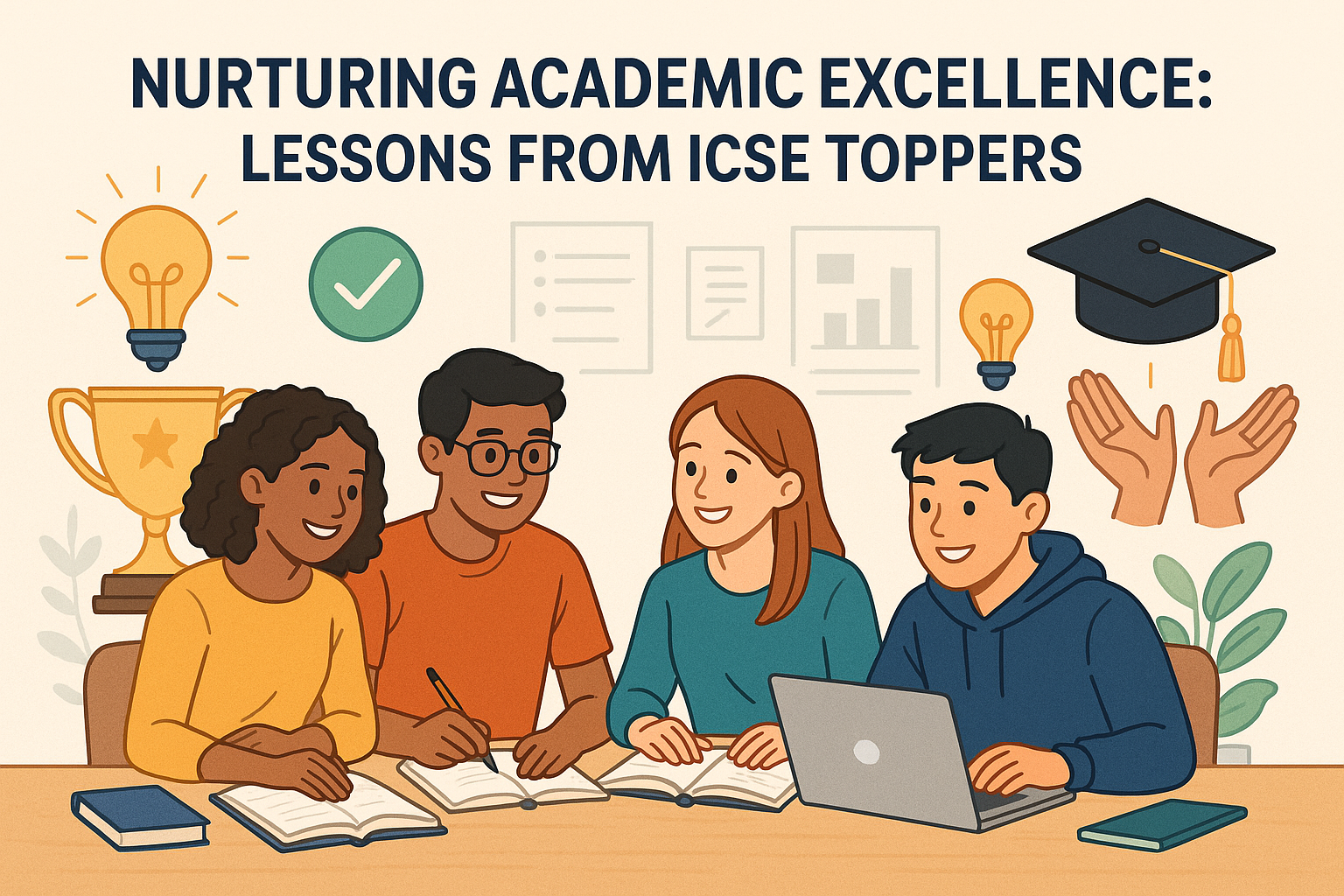
Learn how ICSE toppers study, stay consistent and master concepts. A complete guide for parents and students...
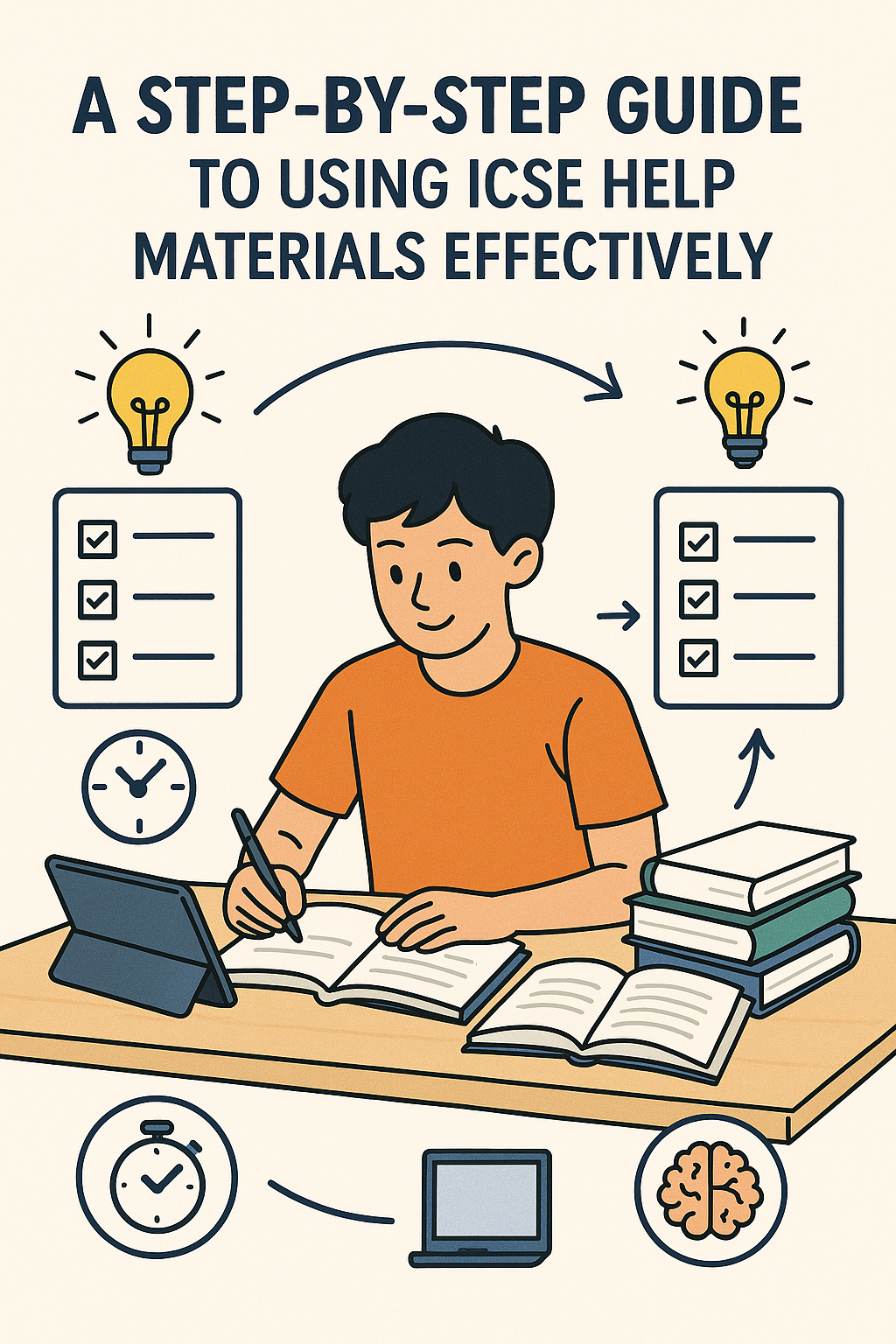
A complete step-by-step guide to using ICSE help materials effectively so students learn faster, stay organised and...
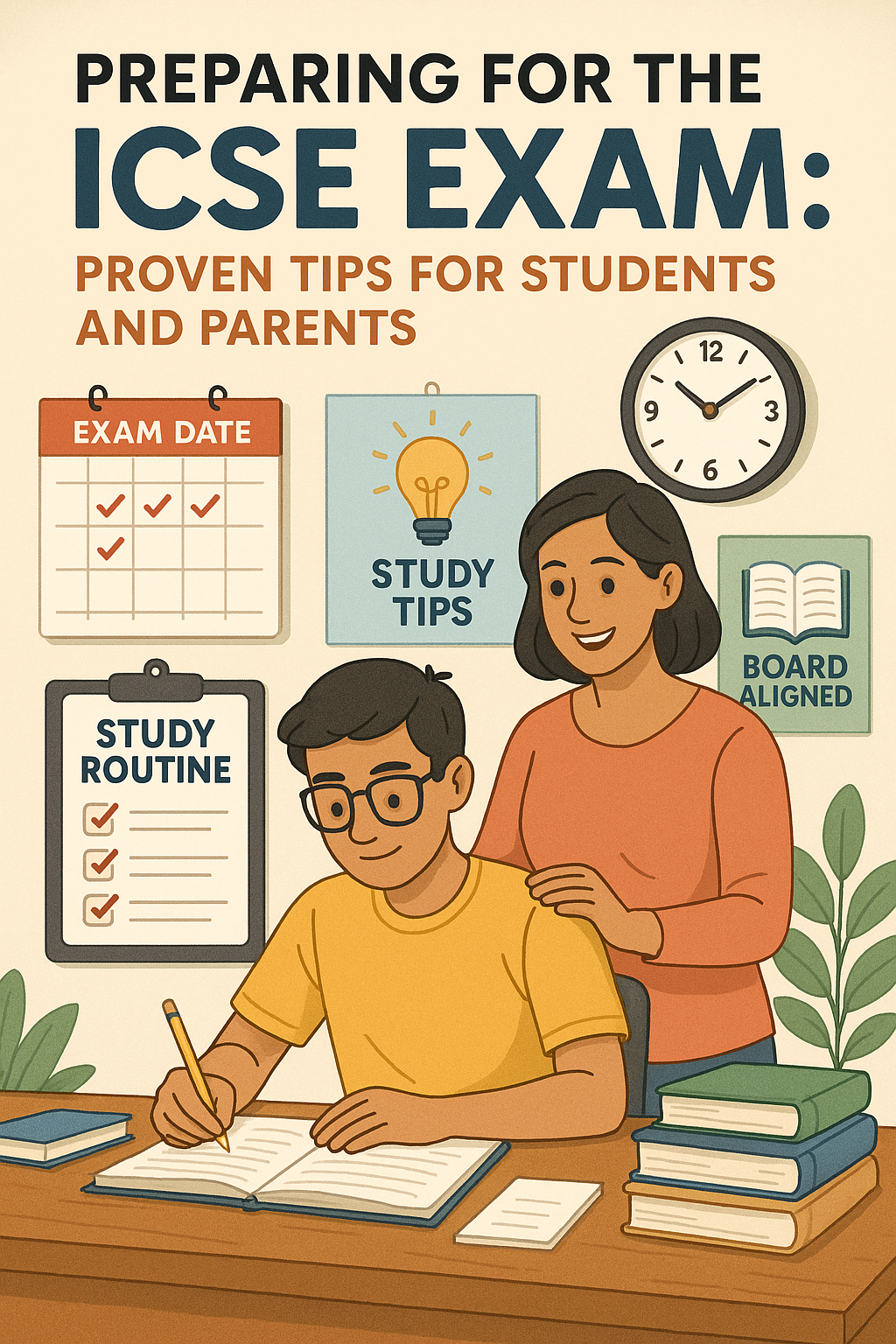
A complete guide for students and parents to prepare effectively for the ICSE exam with proven study strategies,...
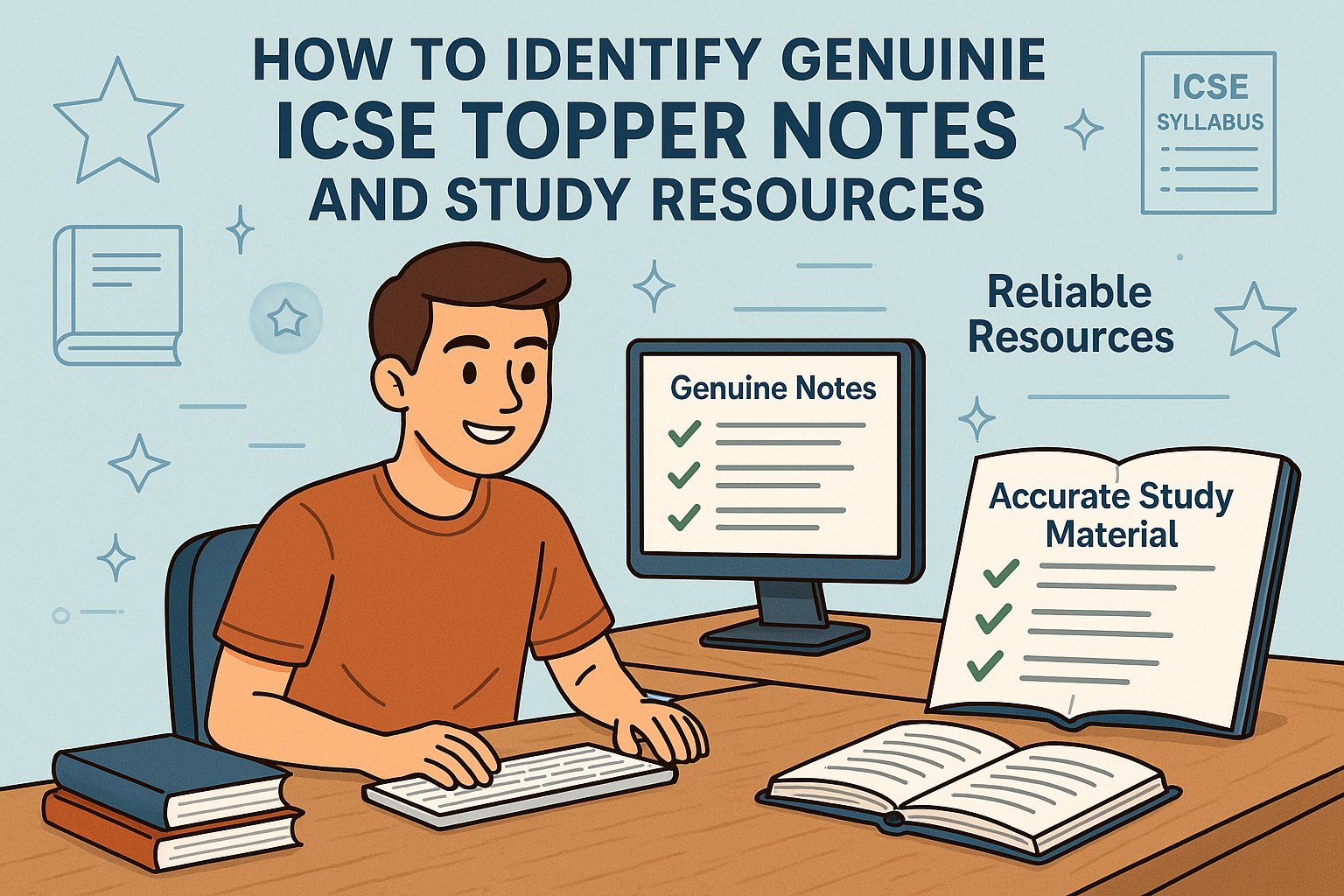
A detailed guide for parents and students to identify genuine ICSE topper notes, reliable resources and accurate...

A parent-friendly guide to ICSE competency-based questions, why they matter and how they strengthen real-world...
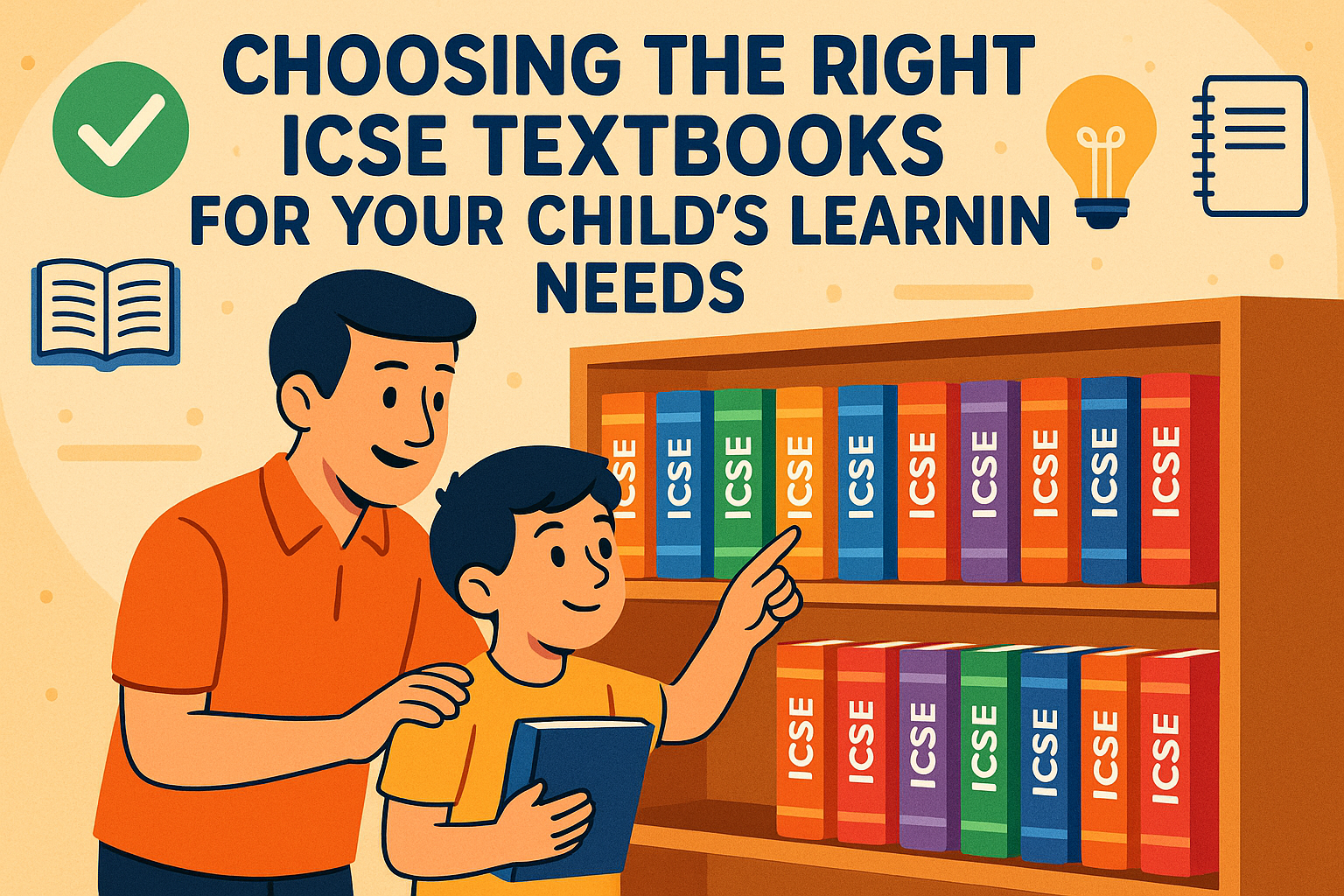
A complete guide to choosing the right ICSE textbooks for your child, with tips on syllabus alignment, clarity,...
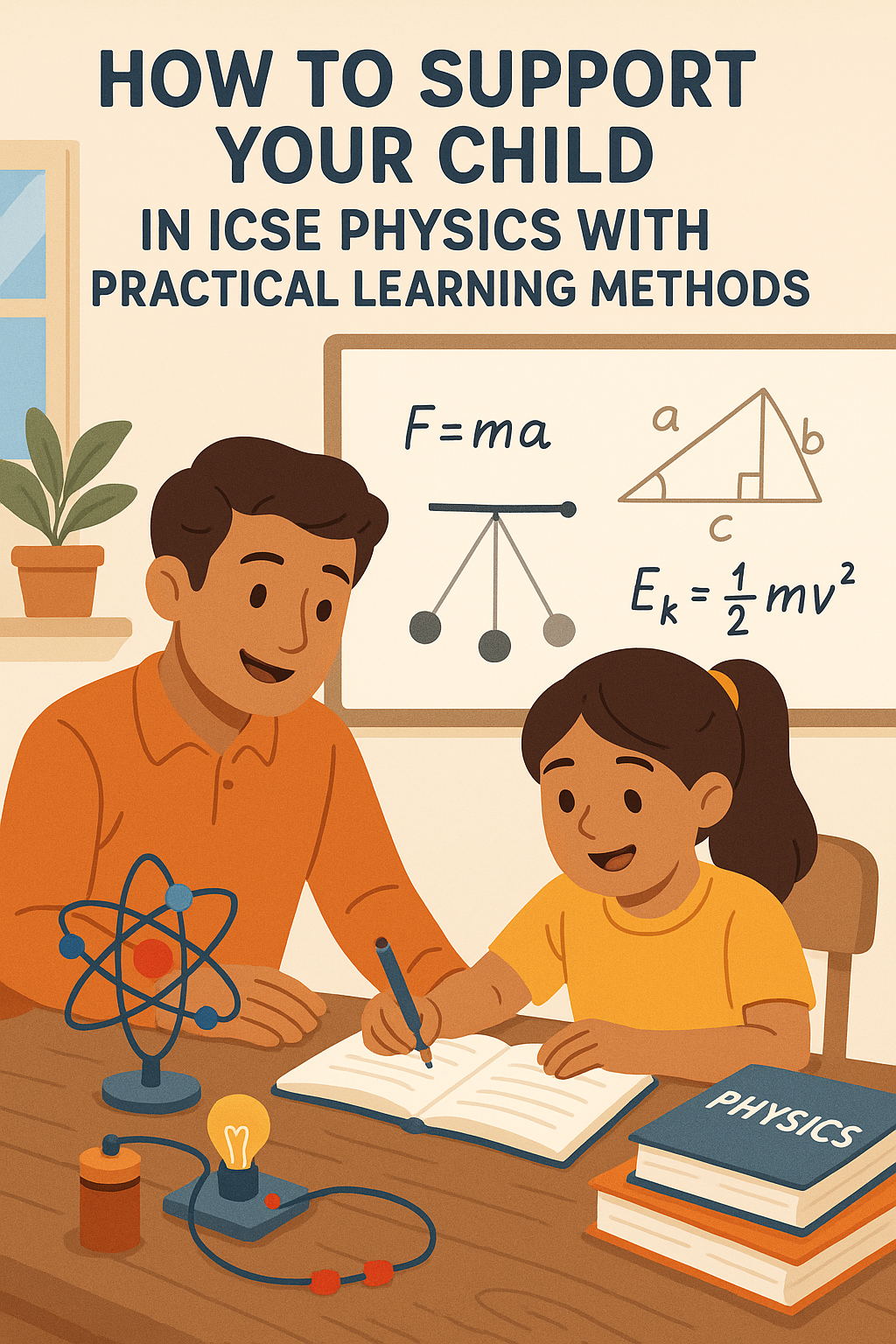
A parent-friendly guide to supporting children in ICSE Physics using practical methods, real-life learning and...
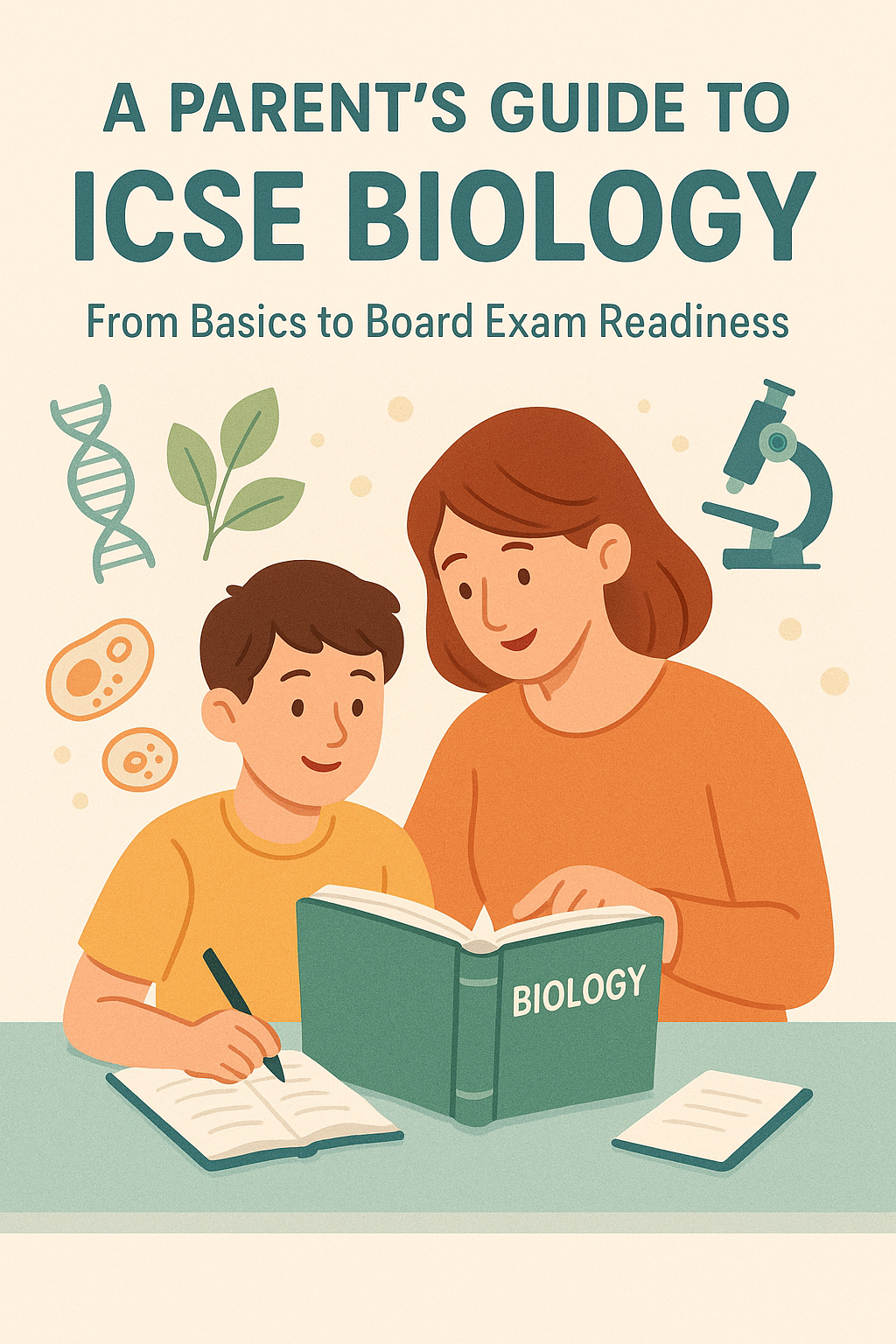
A complete parent-friendly guide to ICSE Biology, covering basics, syllabus insights and steps to help students...
.jpg?width=500)
Build strong ICSE Chemistry fundamentals with simplified concepts, smart study strategies, and structured ICSE help...

Improve ICSE History learning with engaging strategies, simplified explanations, and smart study tools. Help...

Discover how to improve writing and comprehension skills in ICSE English. Learn effective strategies, ICSE syllabus...
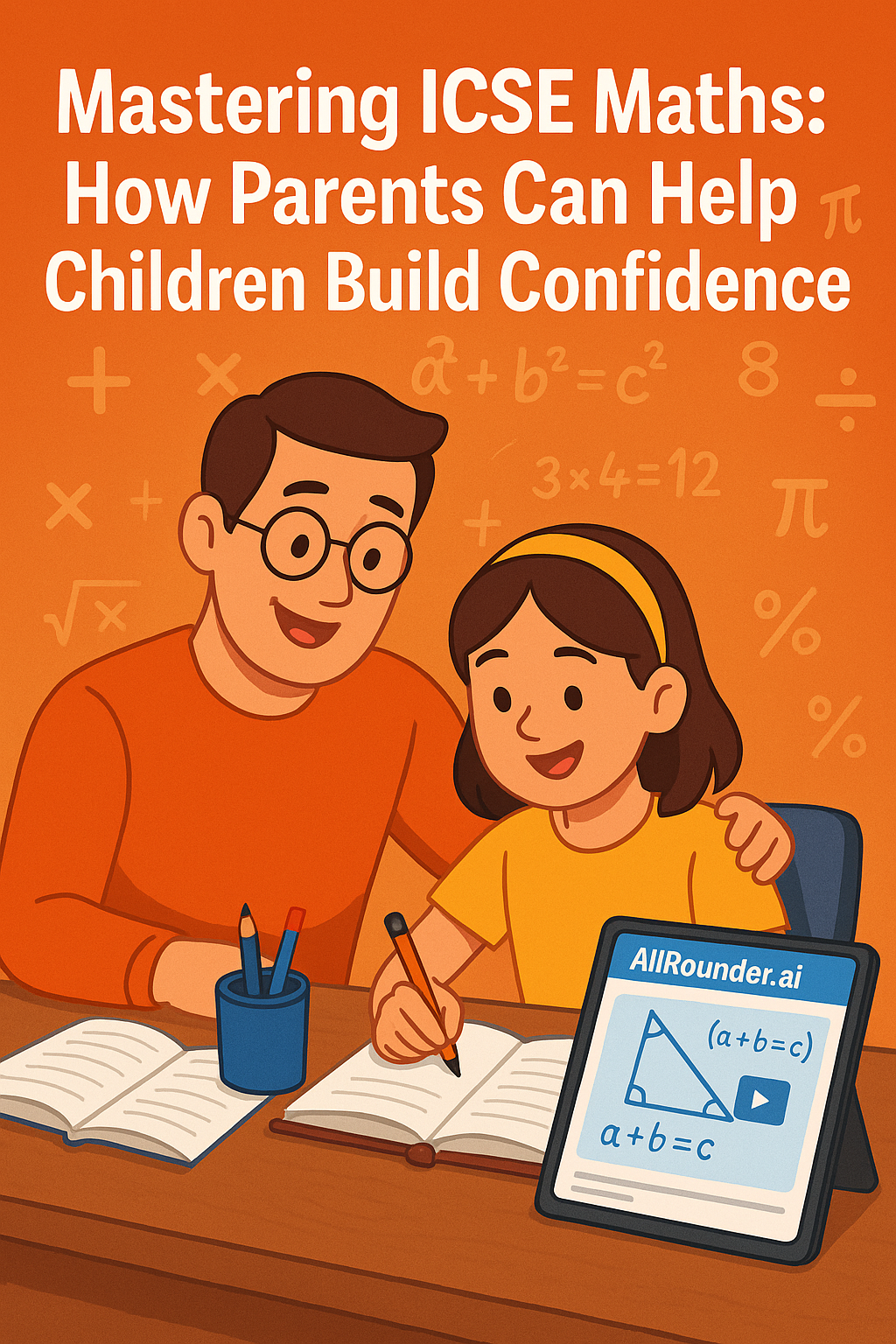
Discover practical ways parents can help children master ICSE Maths. Learn about the ICSE syllabus, study...

Explore ICSE 12th result insights, grading details, and how to use your ICSE marksheet for college admissions. Learn...
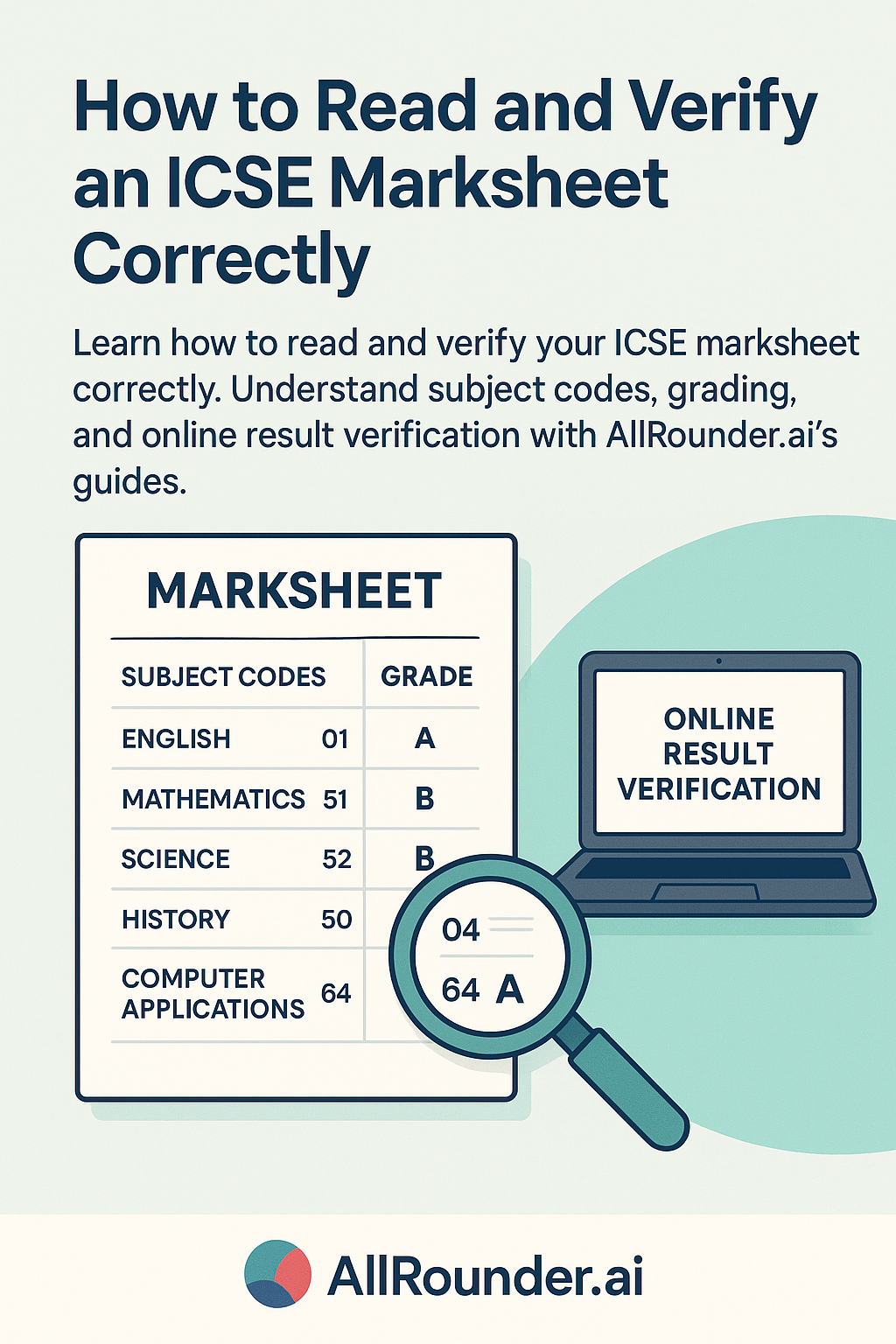
Learn how to read and verify your ICSE marksheet correctly. Understand subject codes, grading, and online result...
.jpg?width=500)
Explore key ICSE 10th result trends, marking patterns, and expert tips to excel in the ICSE exam with...
.jpg?width=500)
Master concept-heavy ICSE subjects with simple study strategies, smart tools, and AllRounder.ai’s personalized...
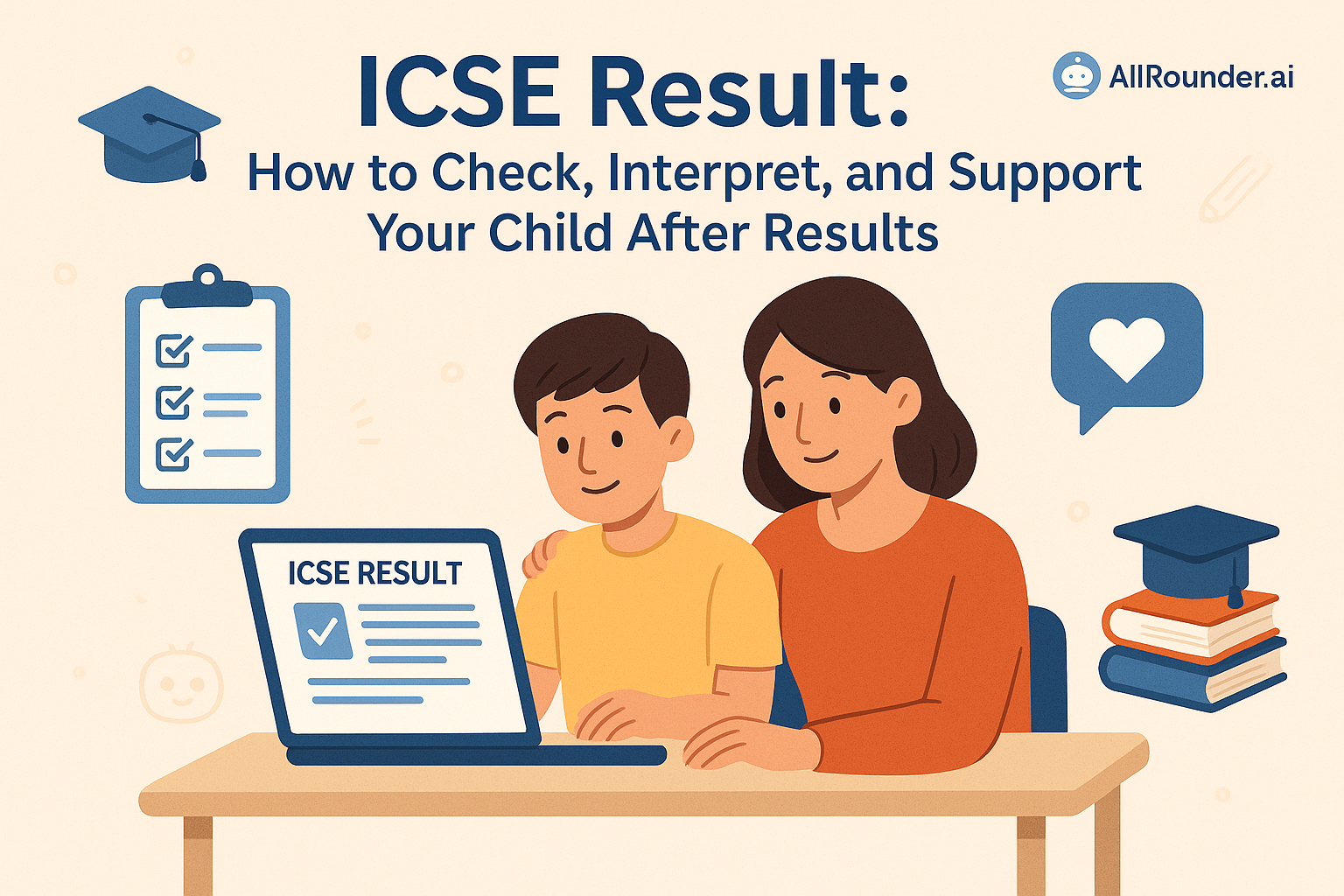
Learn how to check ICSE results, understand grading, and support your child emotionally and academically with help...
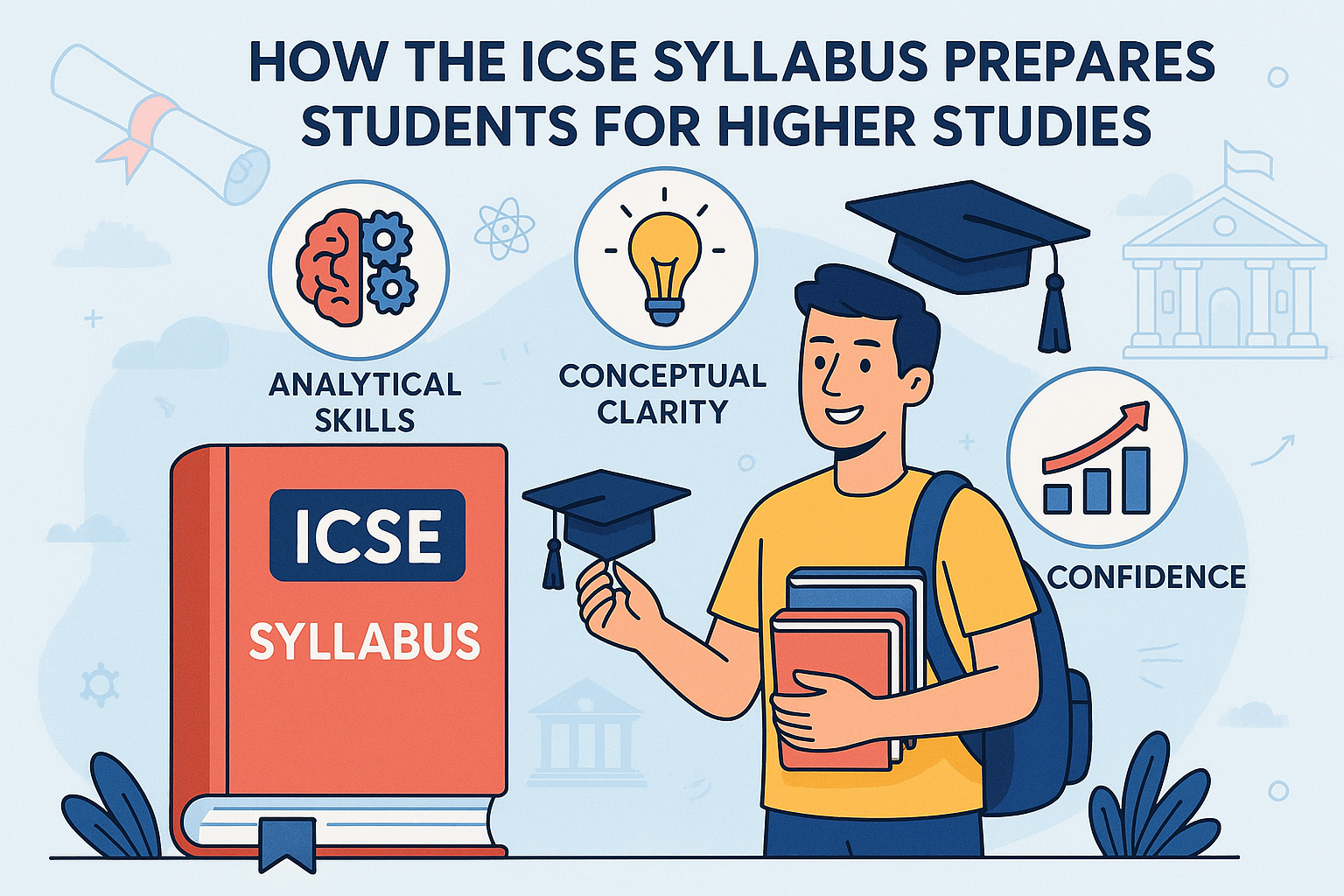
Discover how the ICSE syllabus builds analytical skills, conceptual clarity, and confidence to prepare students for...
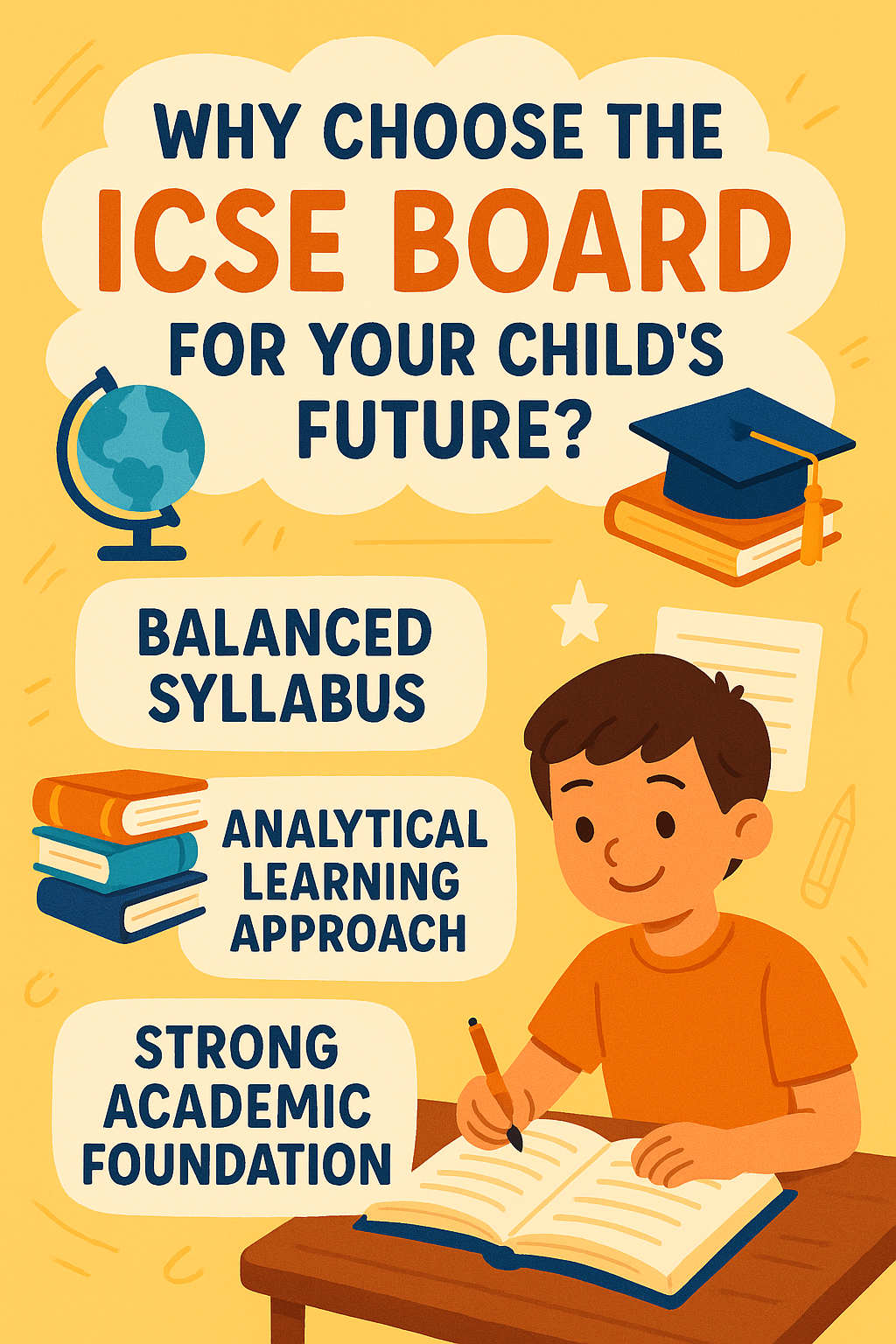
Discover why the ICSE board is ideal for your child’s future with its balanced syllabus, analytical learning...
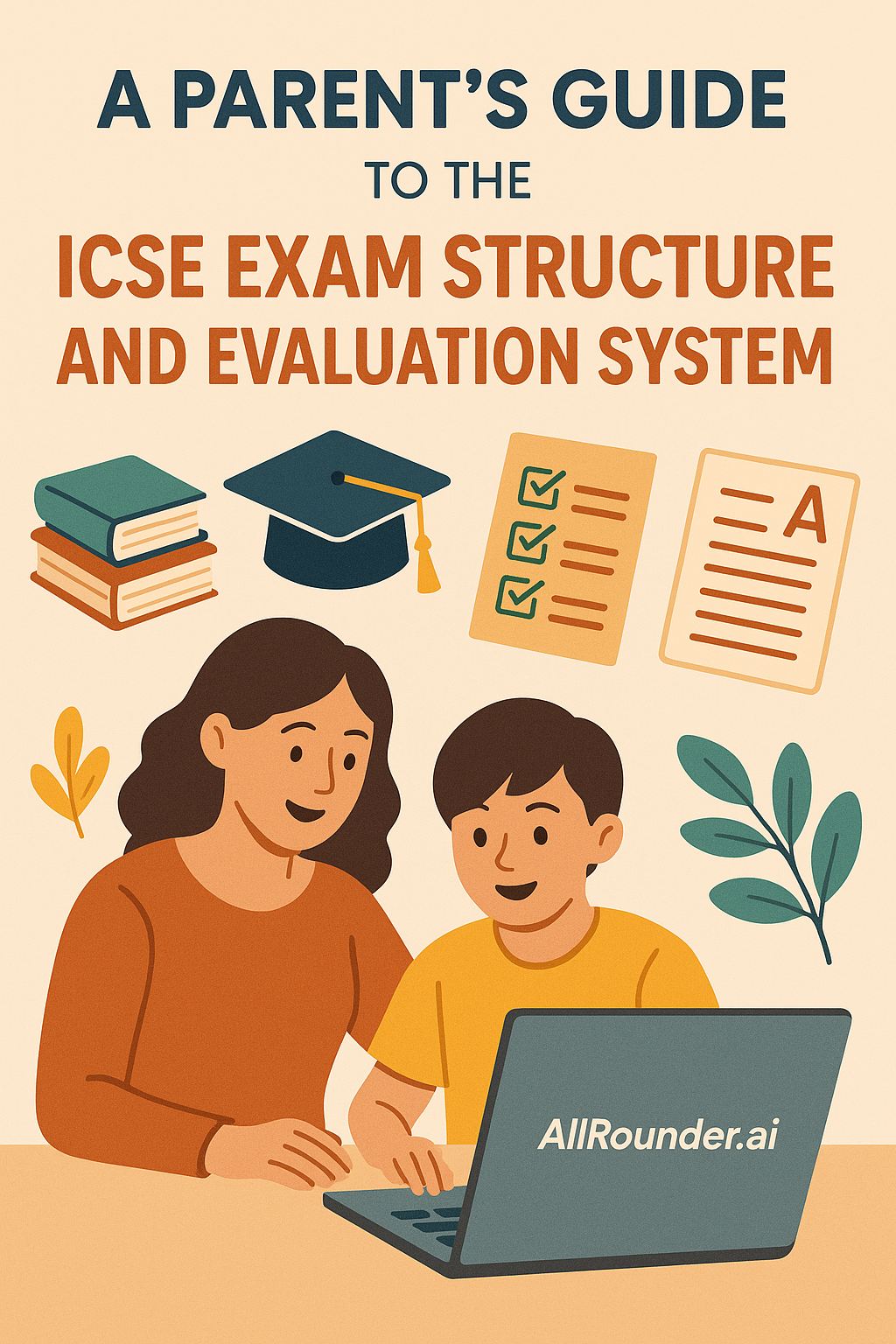
Understand how the ICSE exam system works with this detailed parent’s guide. Learn about subjects, evaluation...
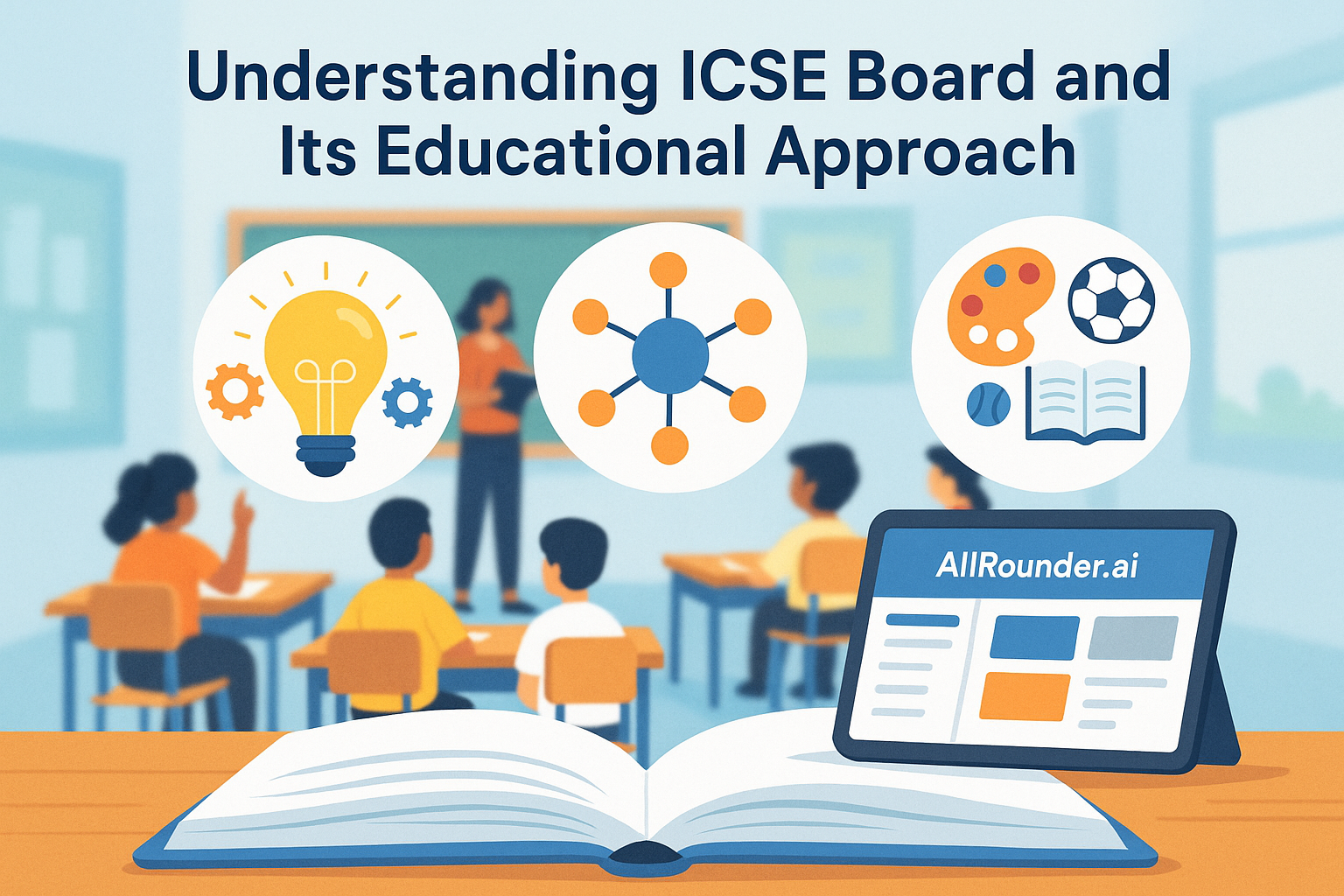
Learn how the ICSE board promotes analytical thinking, conceptual understanding, and balanced development. Discover...
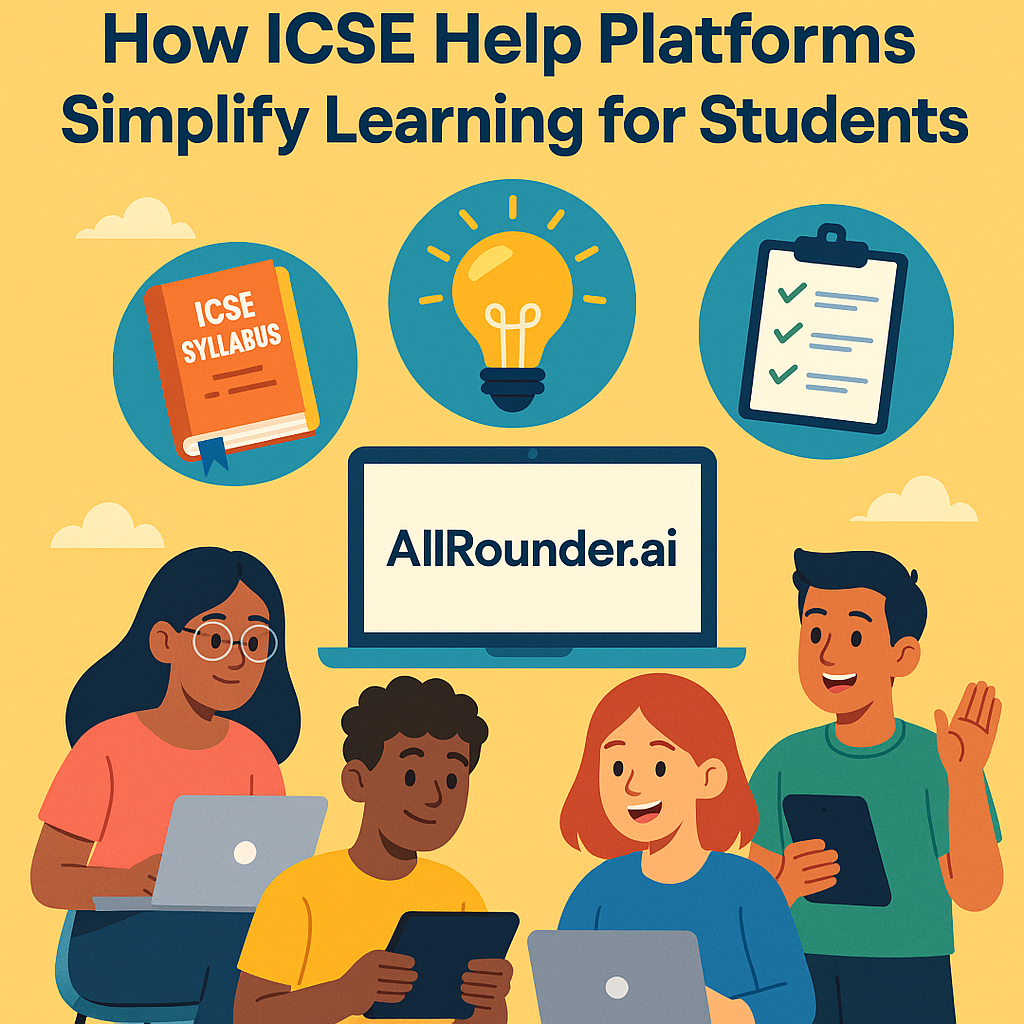
Explore how ICSE help platforms like AllRounder.ai make learning simpler for students by breaking down the ICSE...

A complete guide to the ICSE Class 10 Computer Applications project work. Learn how to choose a topic, plan design,...

Discover the best reference books for Class 10 ICSE Maths. Learn how to use them effectively with AllRounder.ai’s...

Planning for ICSE school fees? Our guide breaks down the costs in major Indian cities, helps you find affordable...

Compare ICSE vs. CBSE to choose the best board for your child. Learn about syllabus differences, teaching styles,...

Learn how to choose the best ICSE subjects for Class 9 and 10. Explore Group I, II, and III subjects, internal...
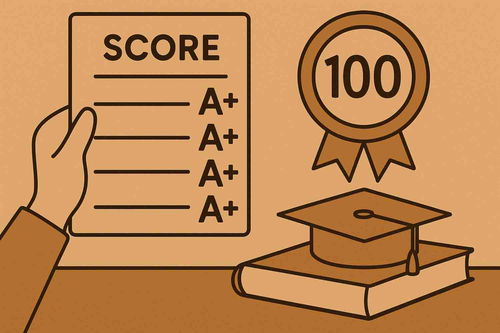
Learn how the ICSE grading system works in 2025–26. Know internal assessments, percentage calculation, and tips to...

Discover how ICSE builds critical thinking, analytical skills, and real-world problem-solving through its unique...
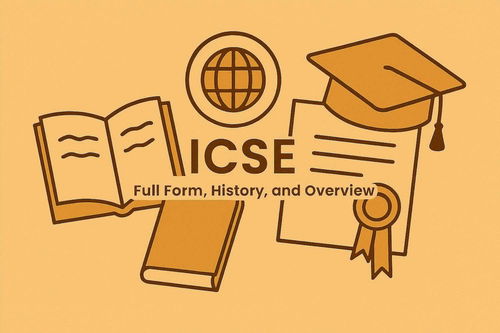
Understand the ICSE board – its history, structure, curriculum, and unique advantages over other boards.
Resources
-
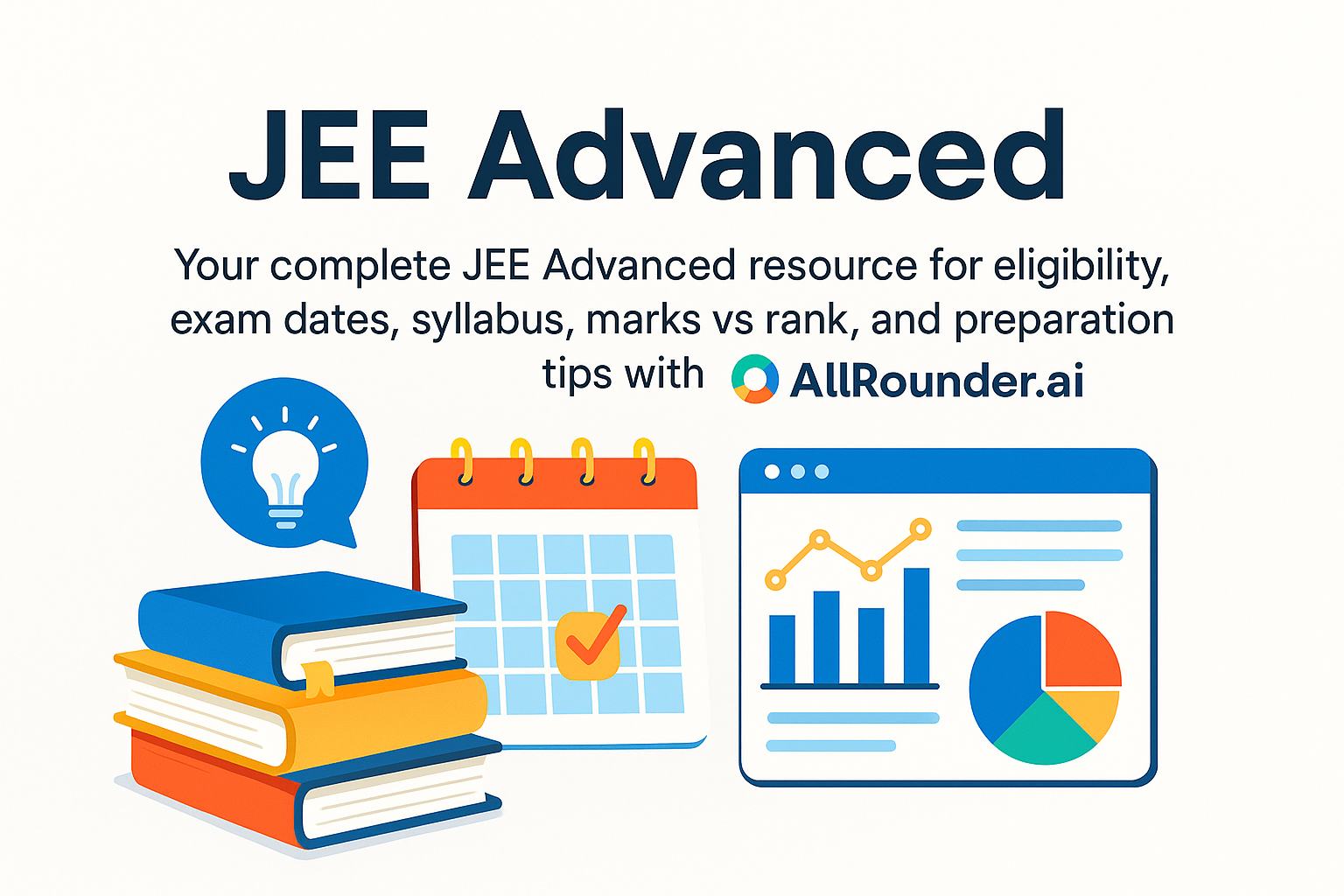
Your complete JEE Advanced resource for eligibility, exam dates, syllabus, marks vs rank, and...
-
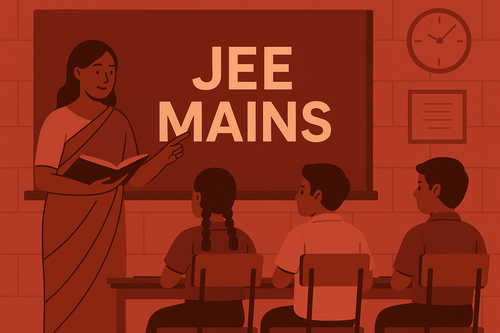
Understand the entire JEE Main process, from application and eligibility rules to the exam...
-

Explore the IB Board – a global curriculum emphasizing holistic, student-centered learning...
-

Learn about CBSE – India’s national school board offering a standardized curriculum, NCERT...
-

Explore everything about the ICSE board – its curriculum, subjects, exam format, and academic...
